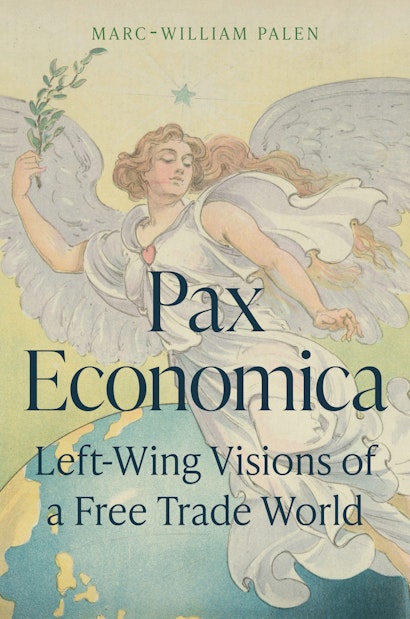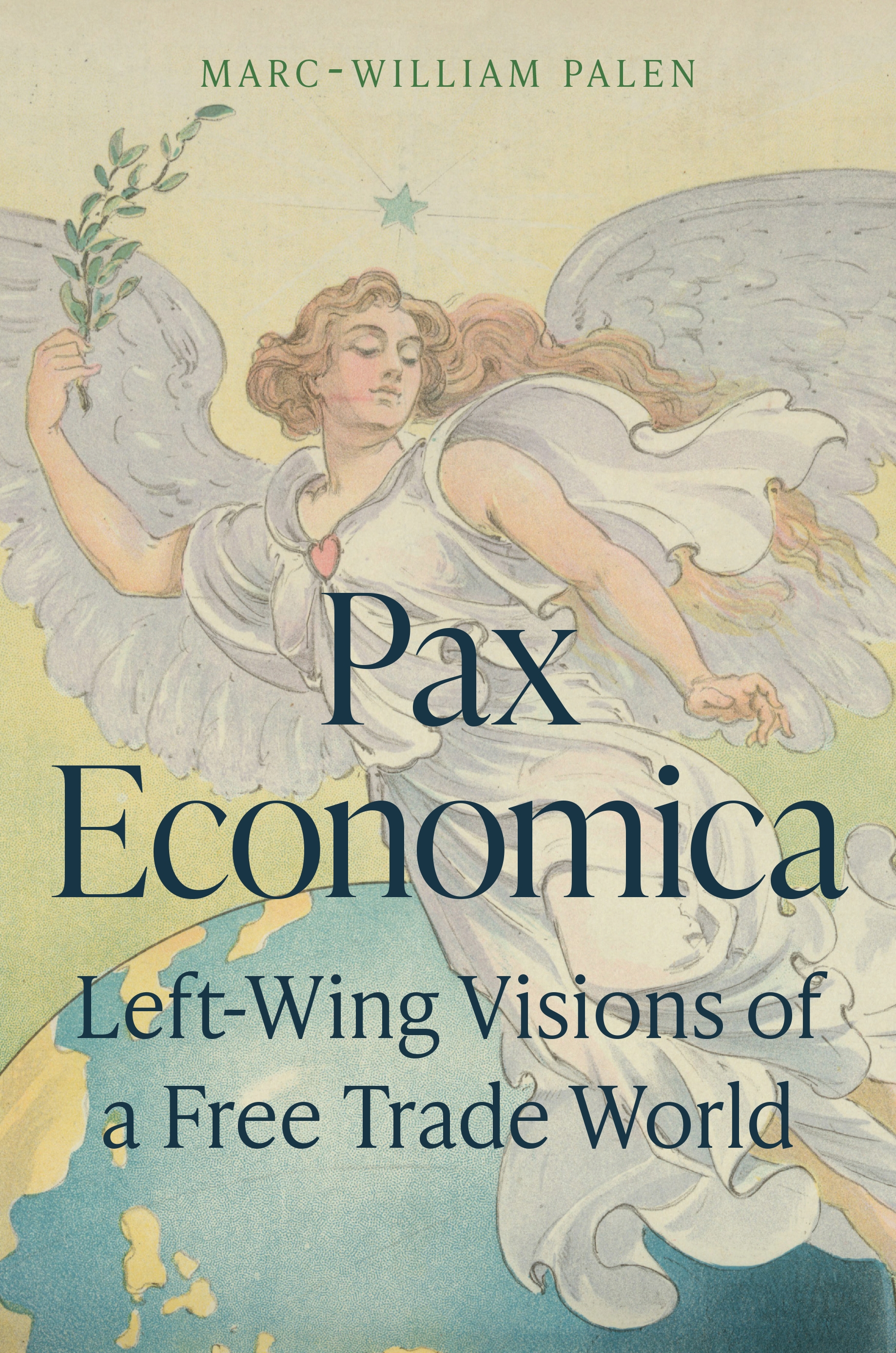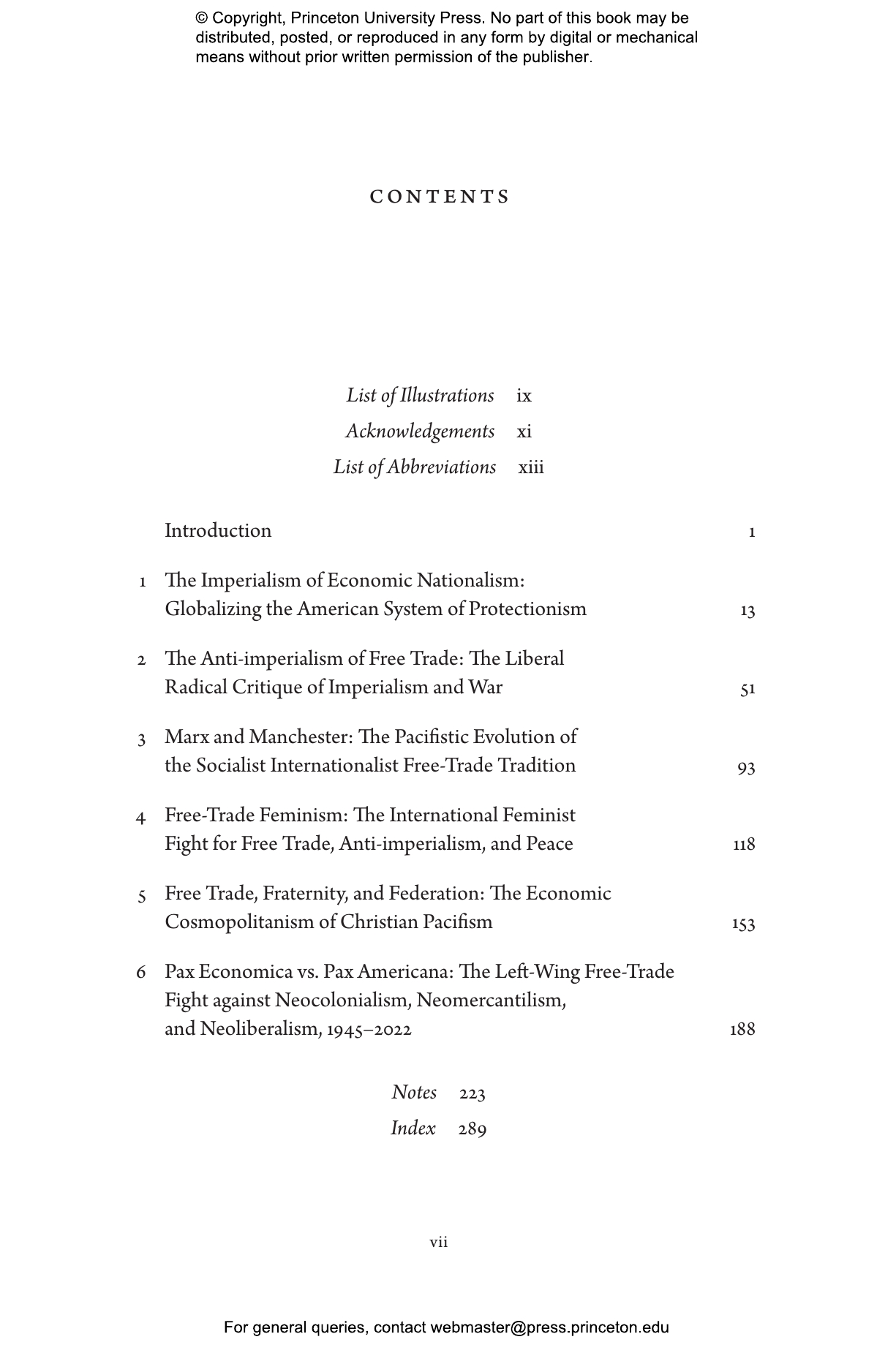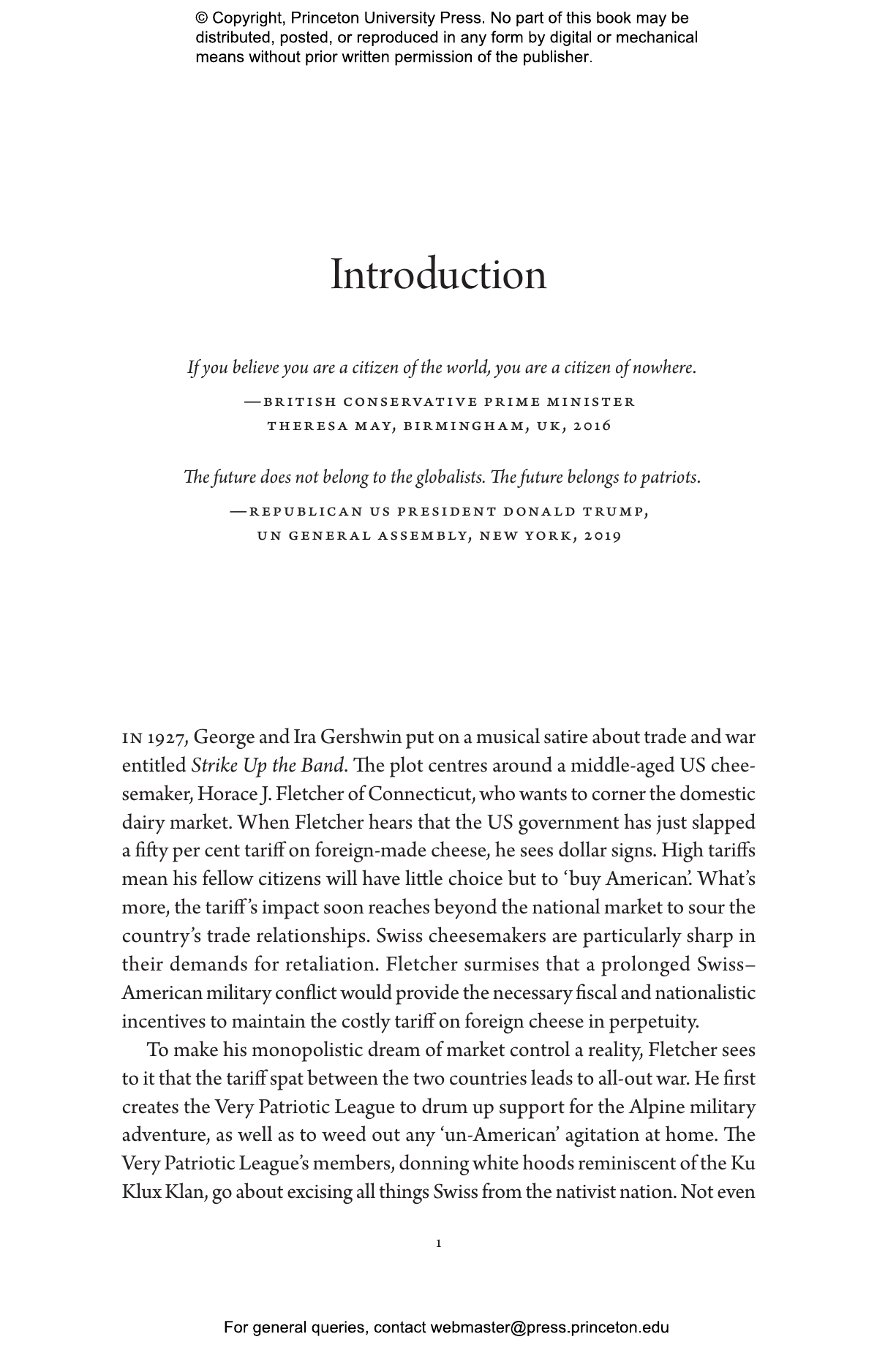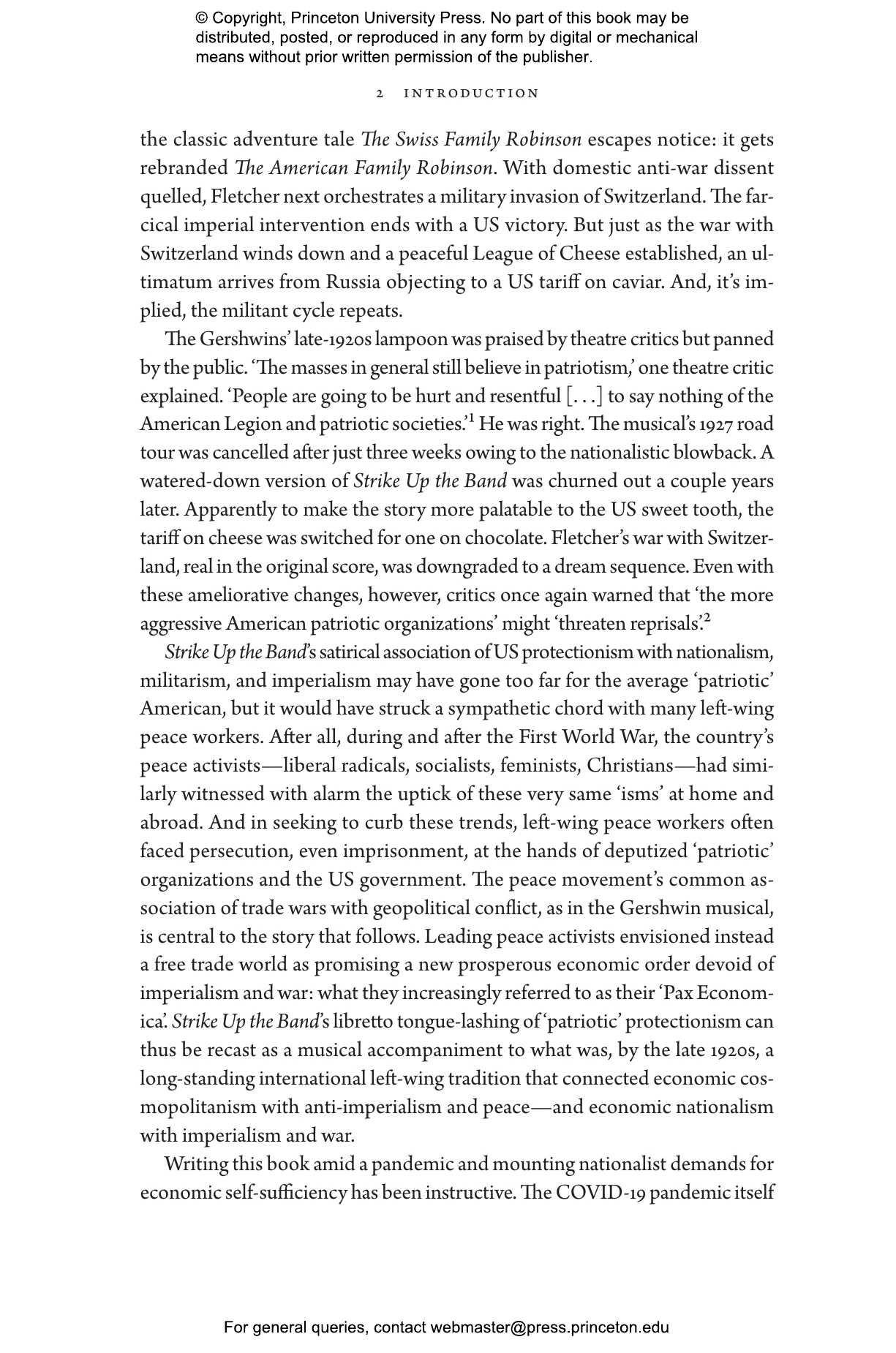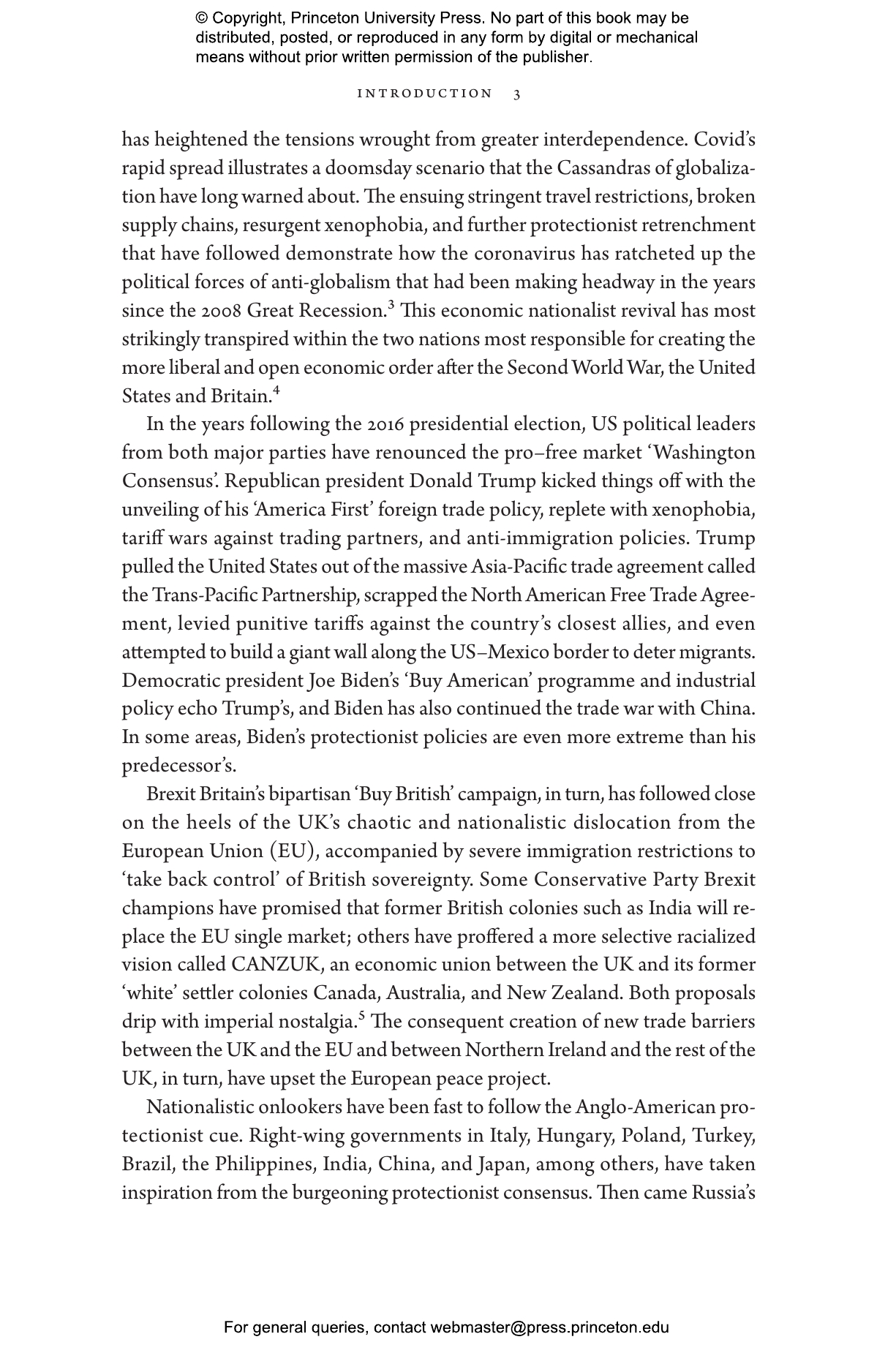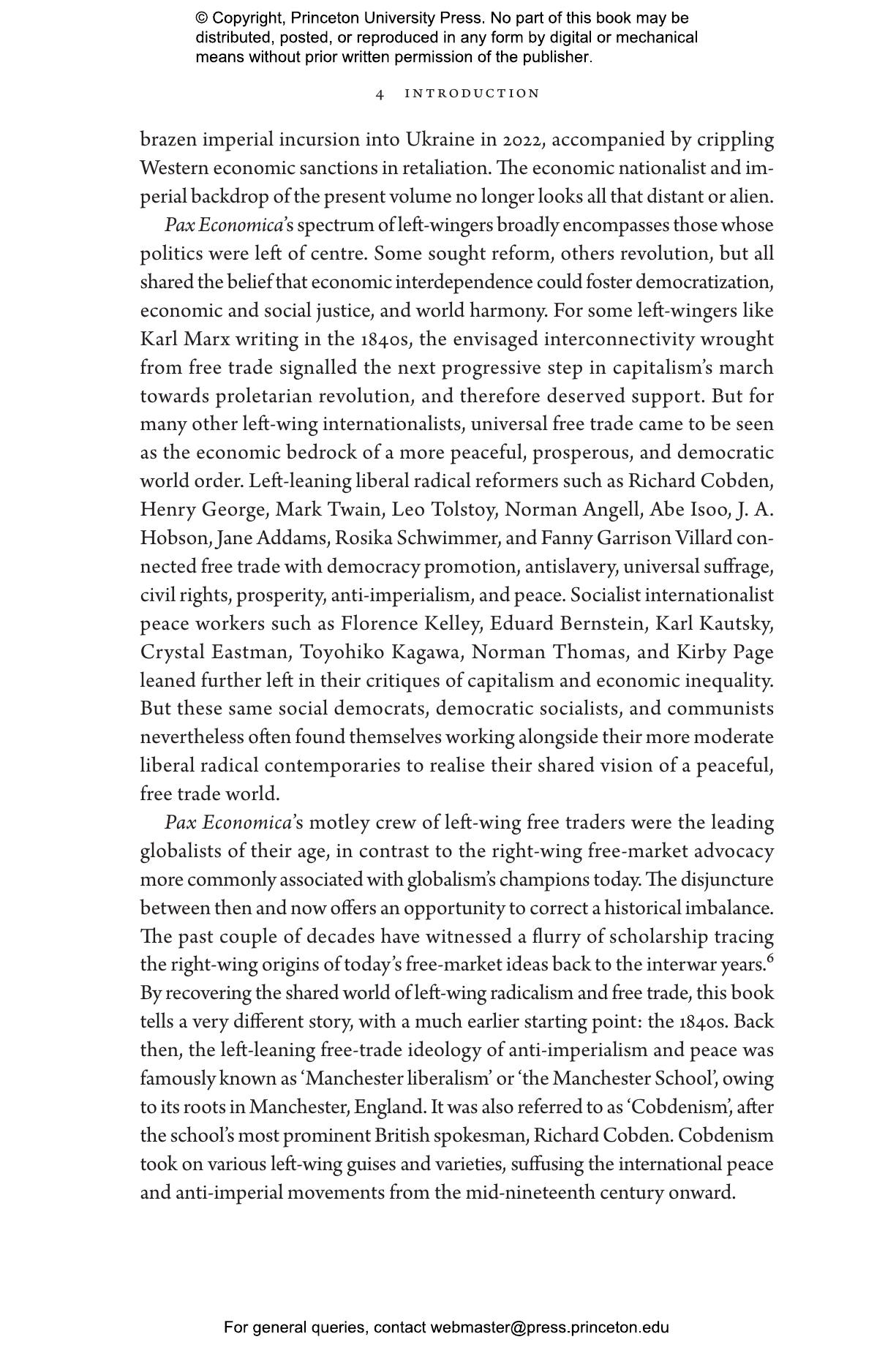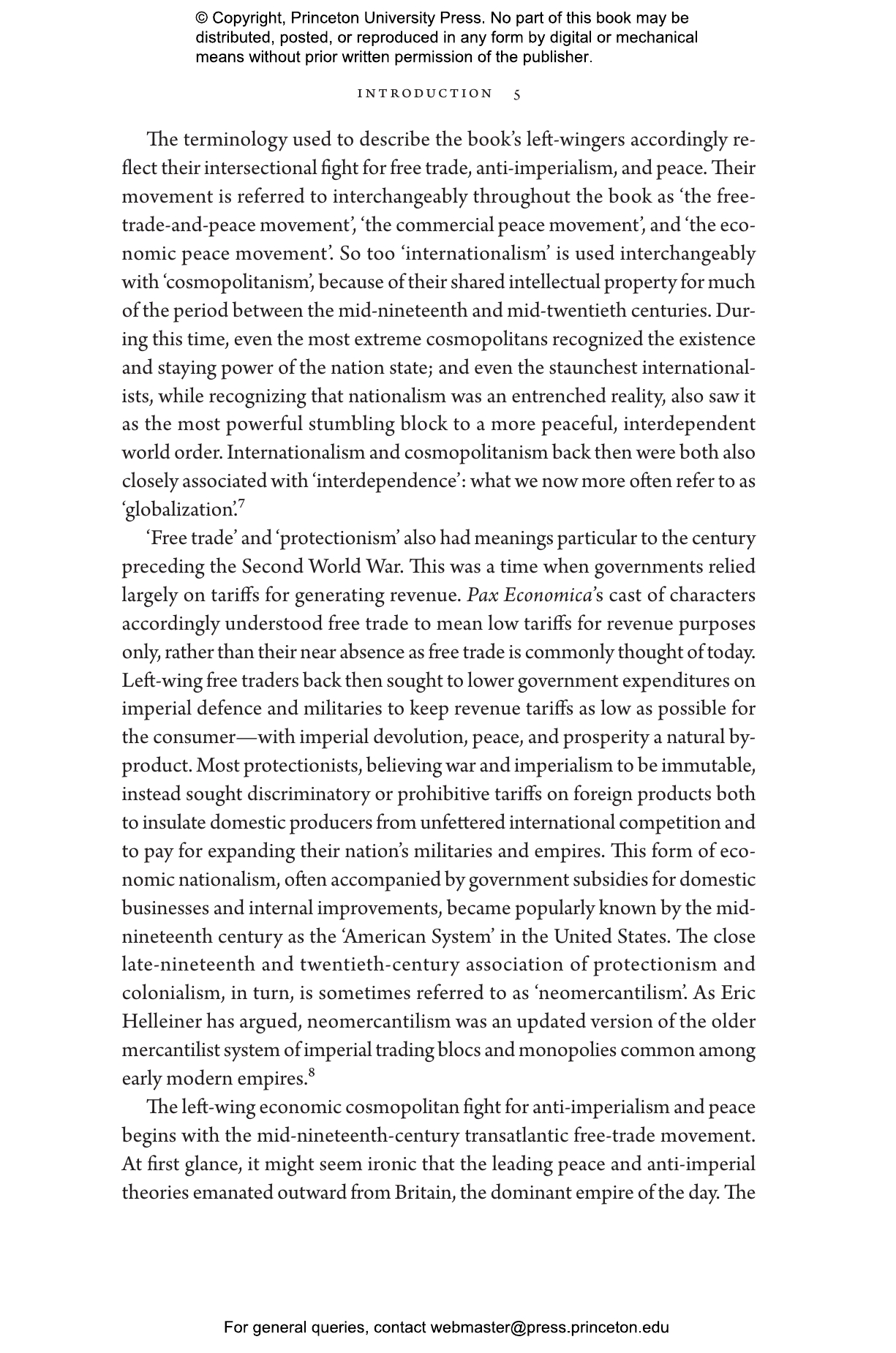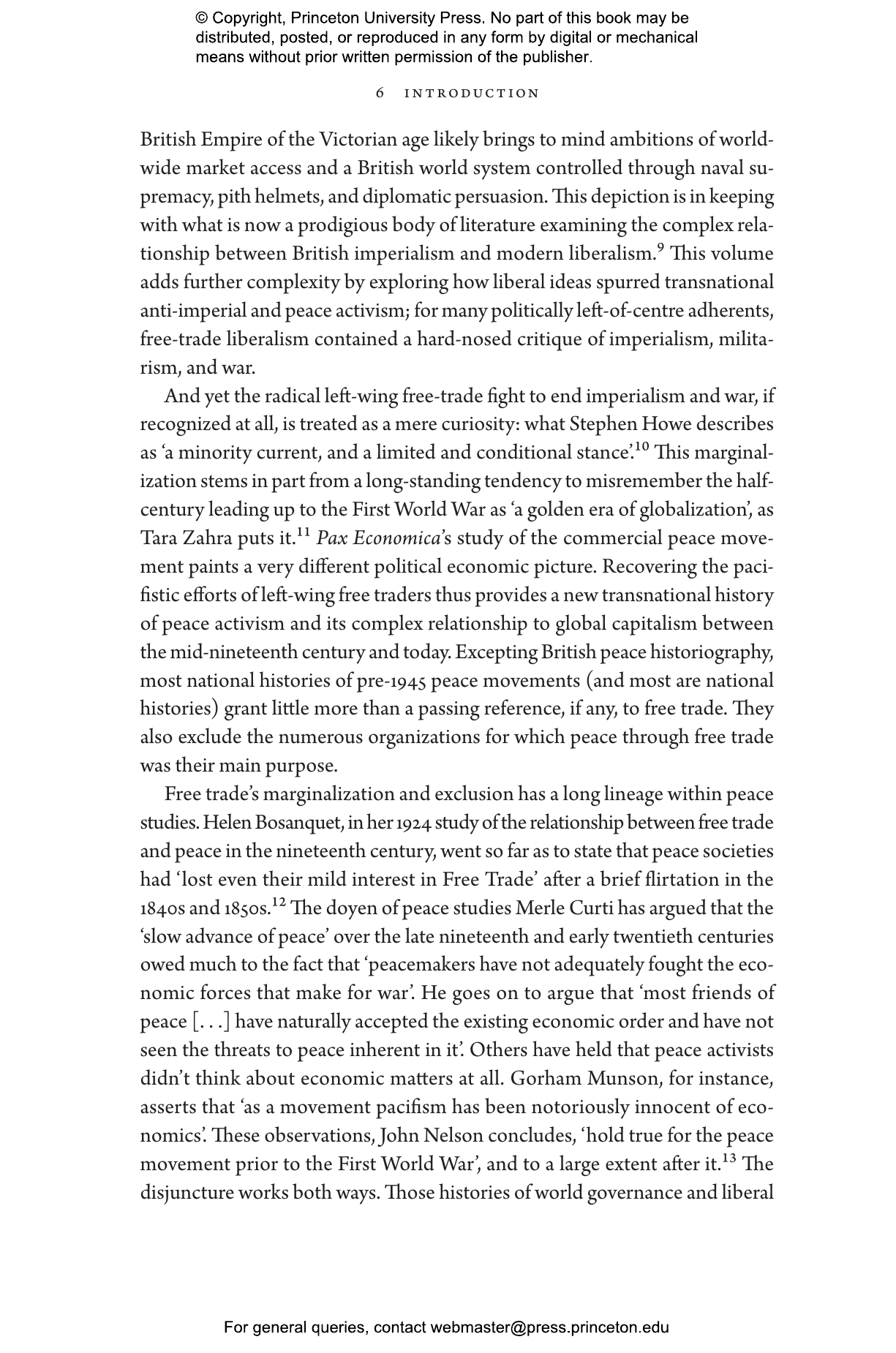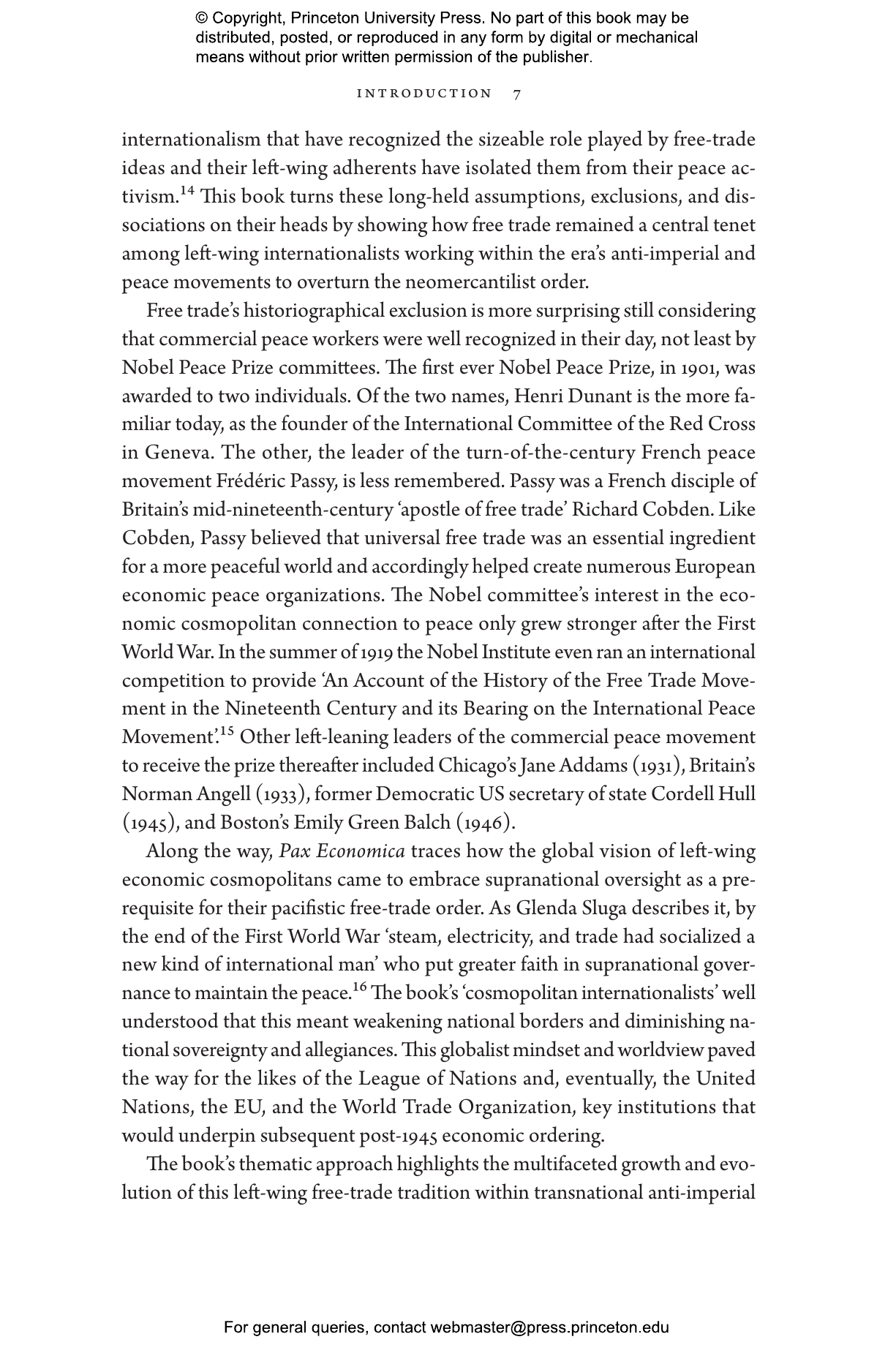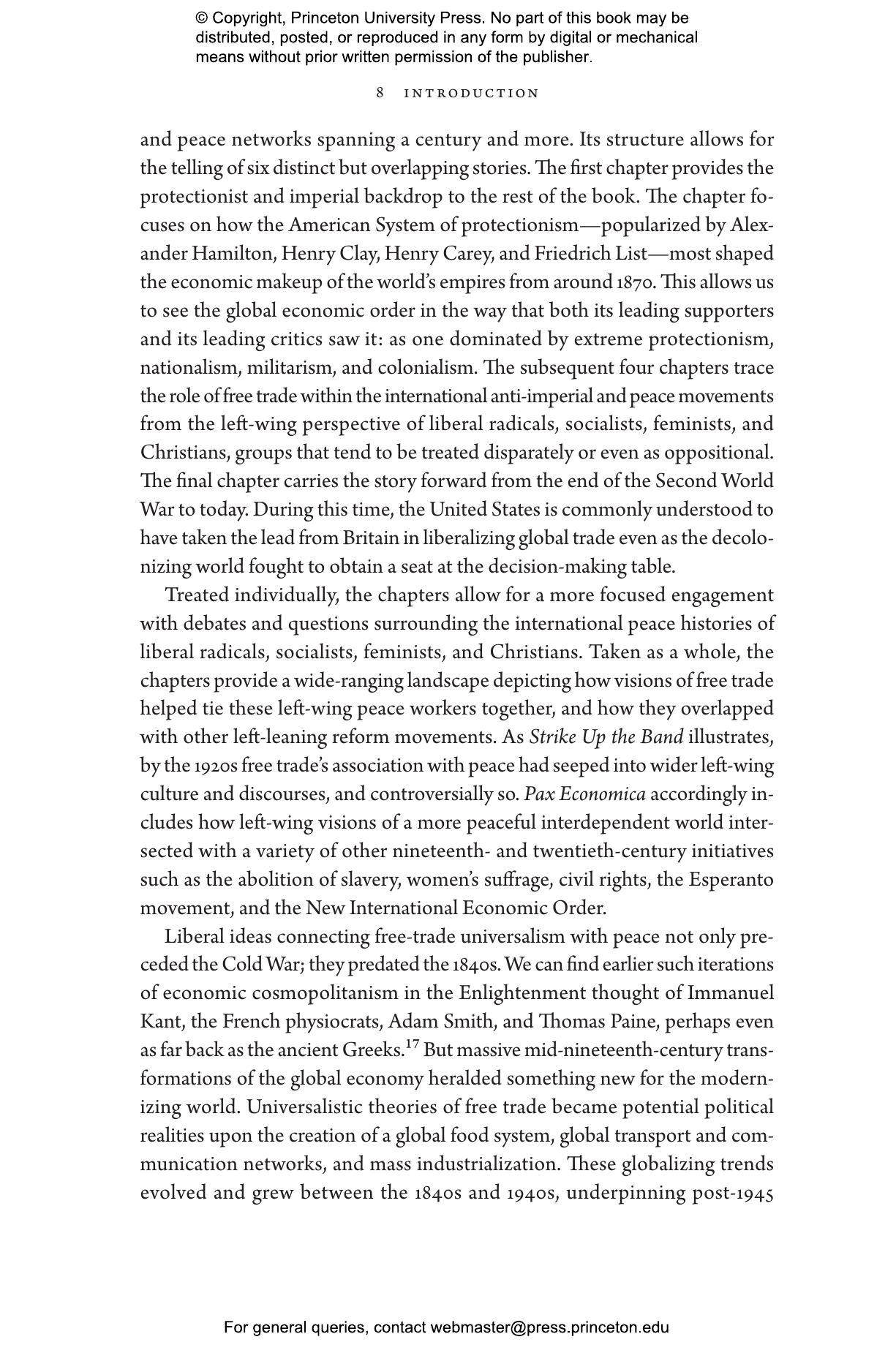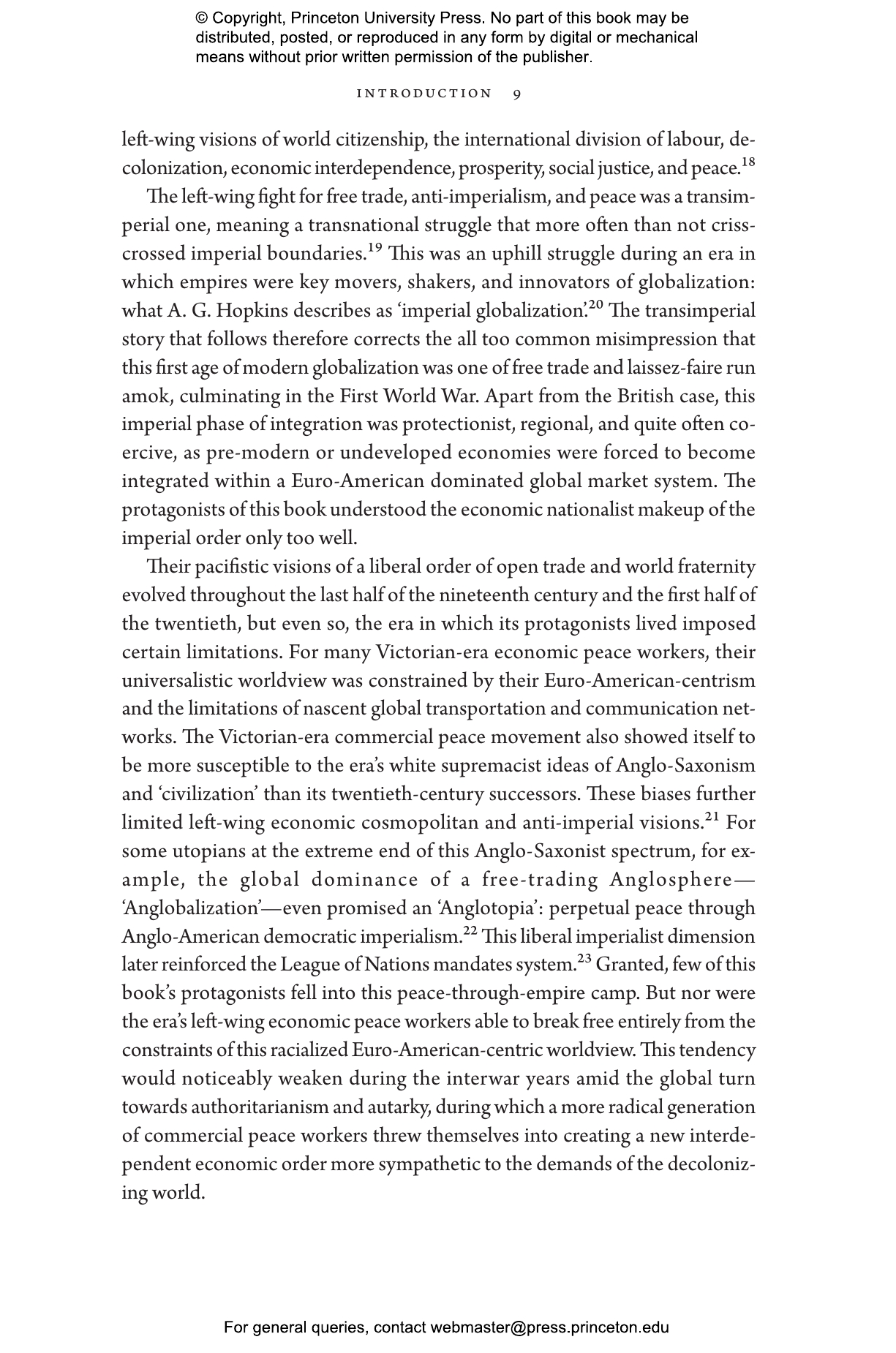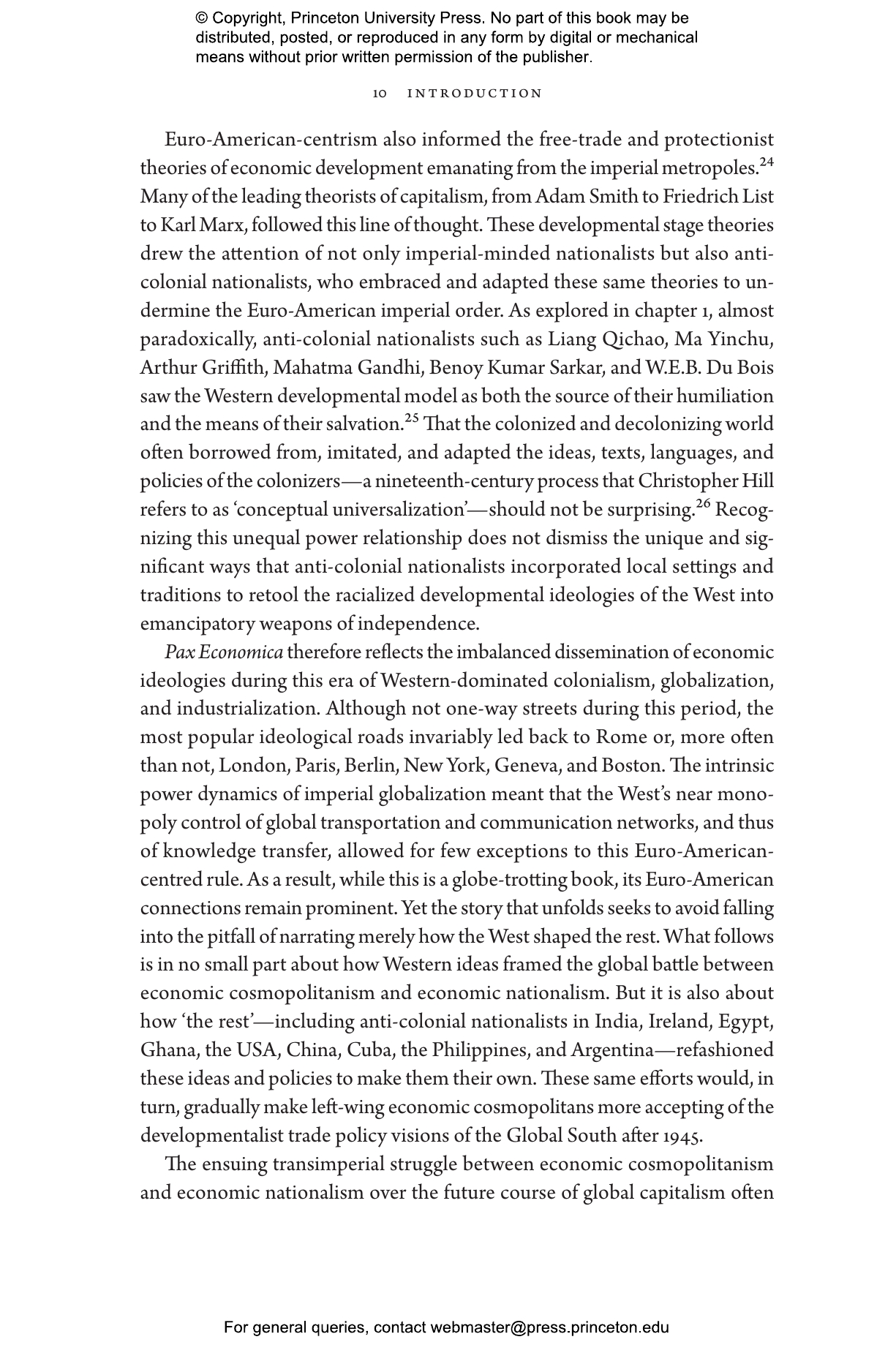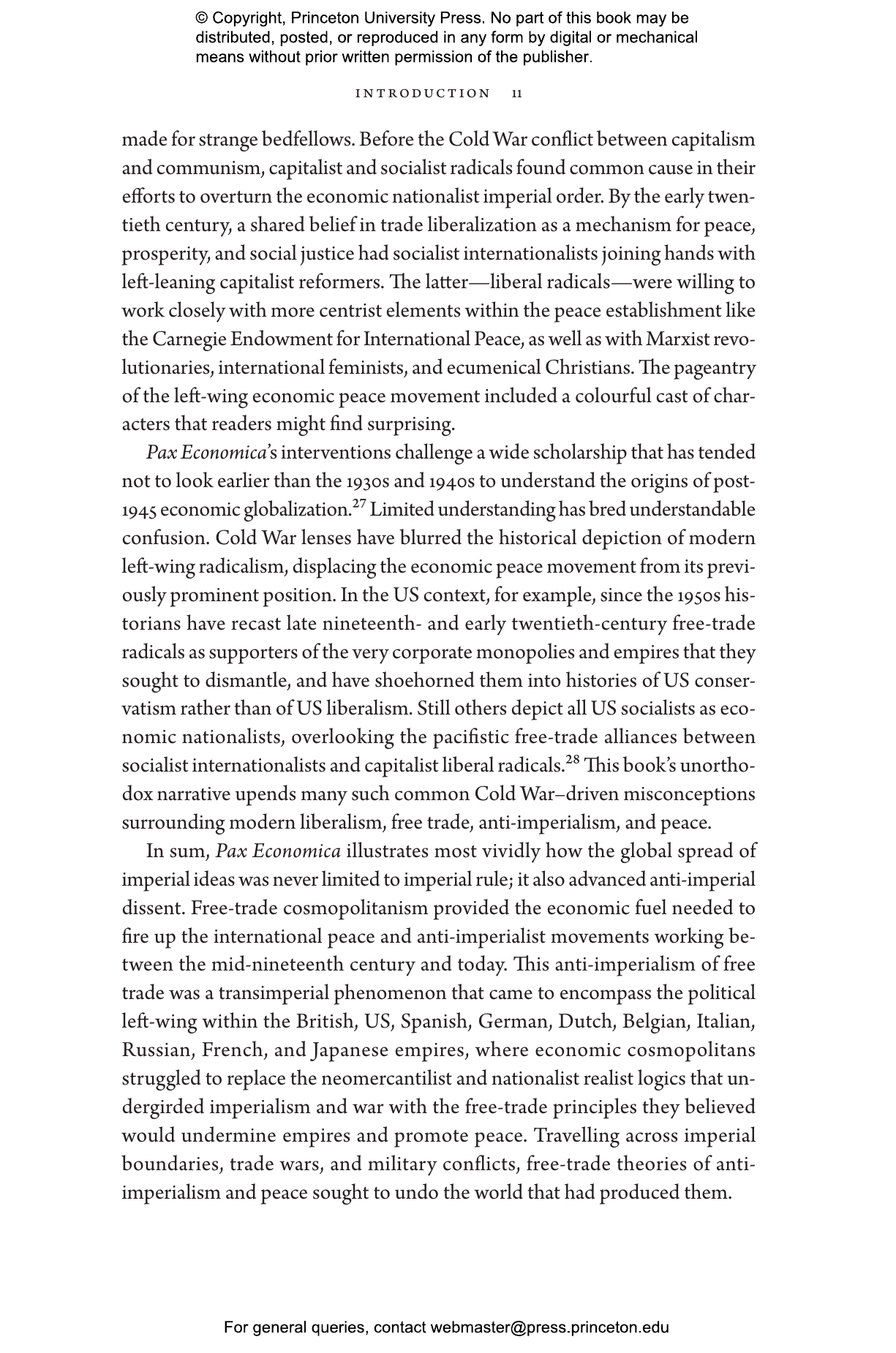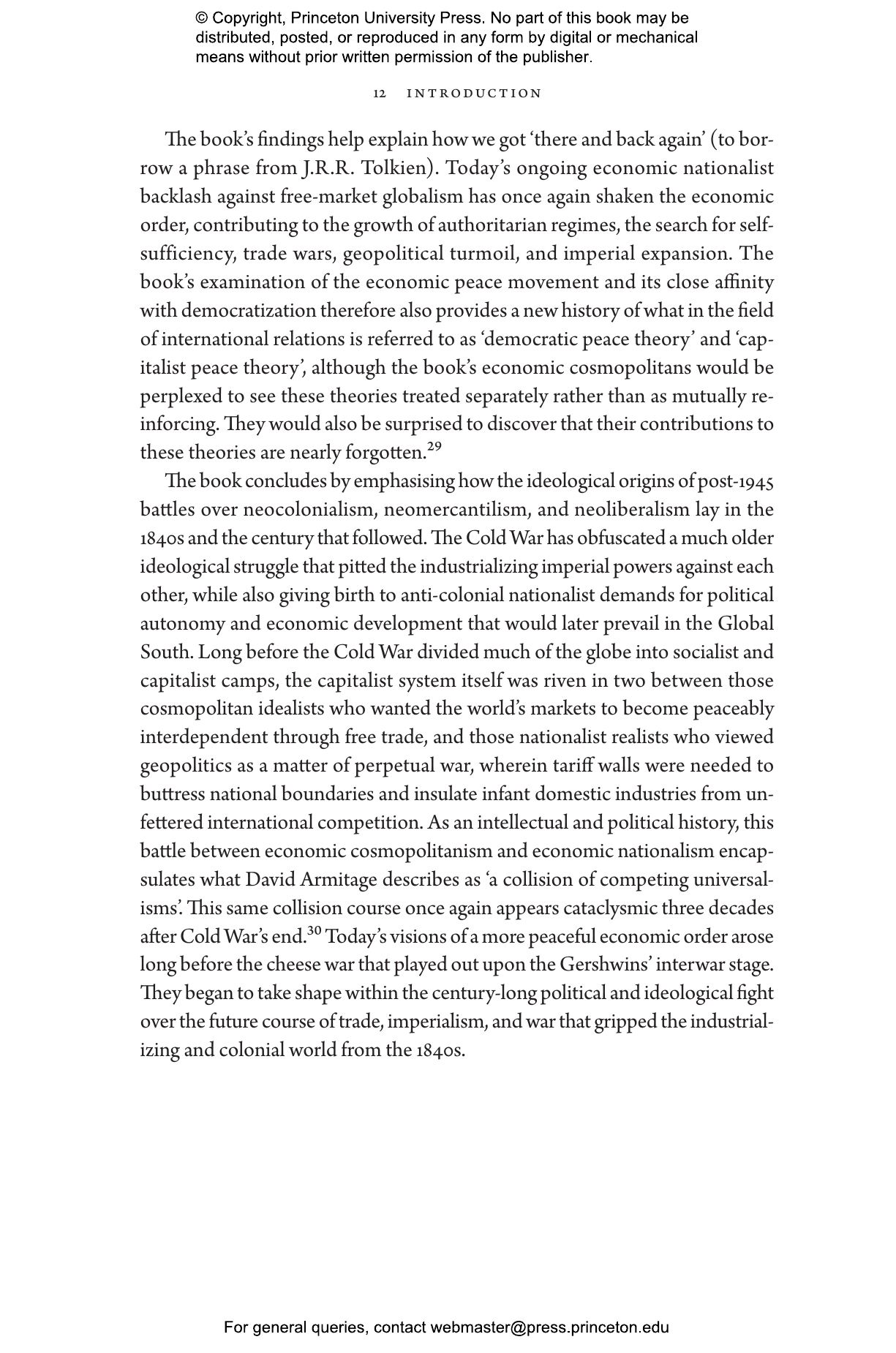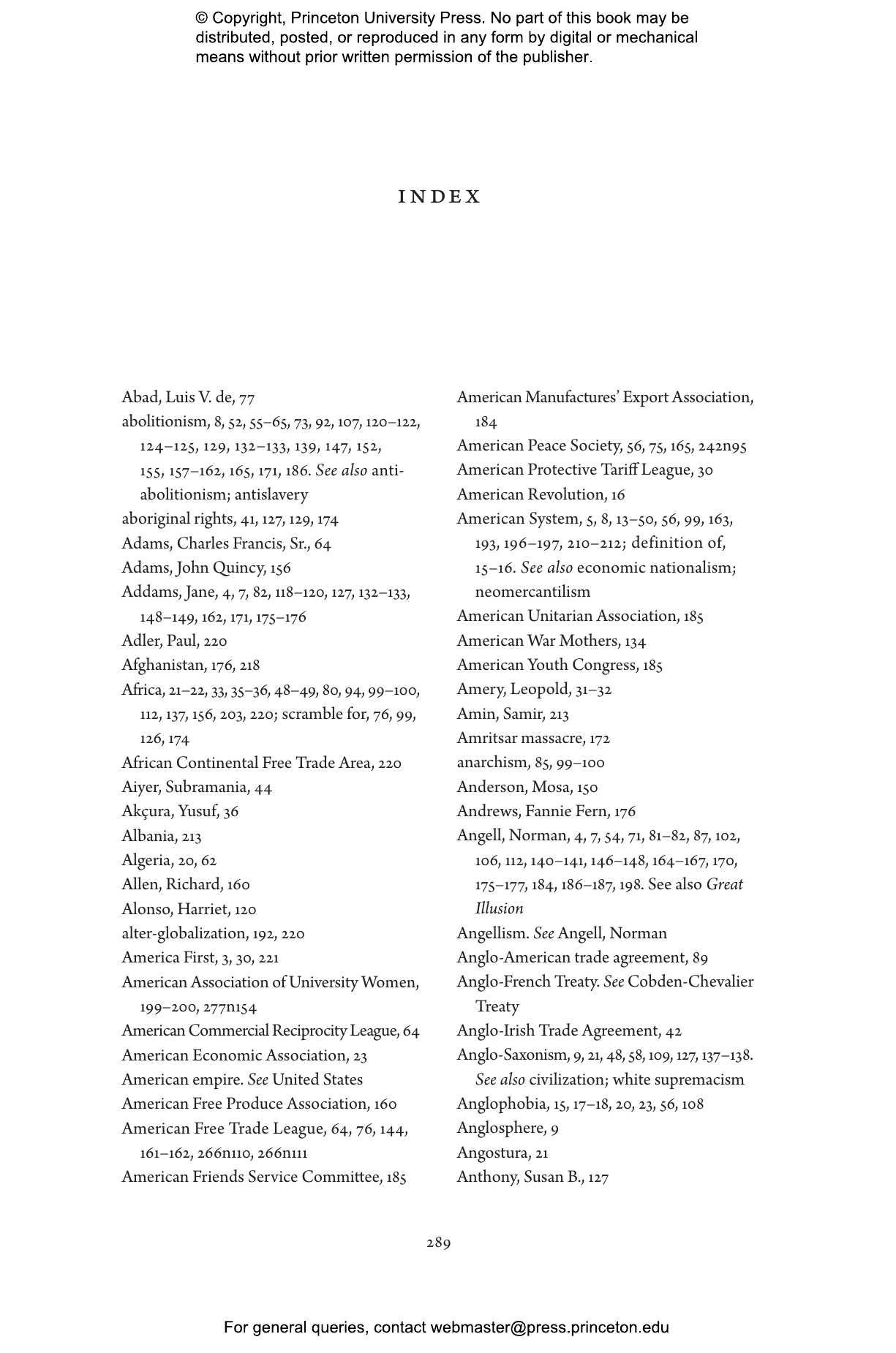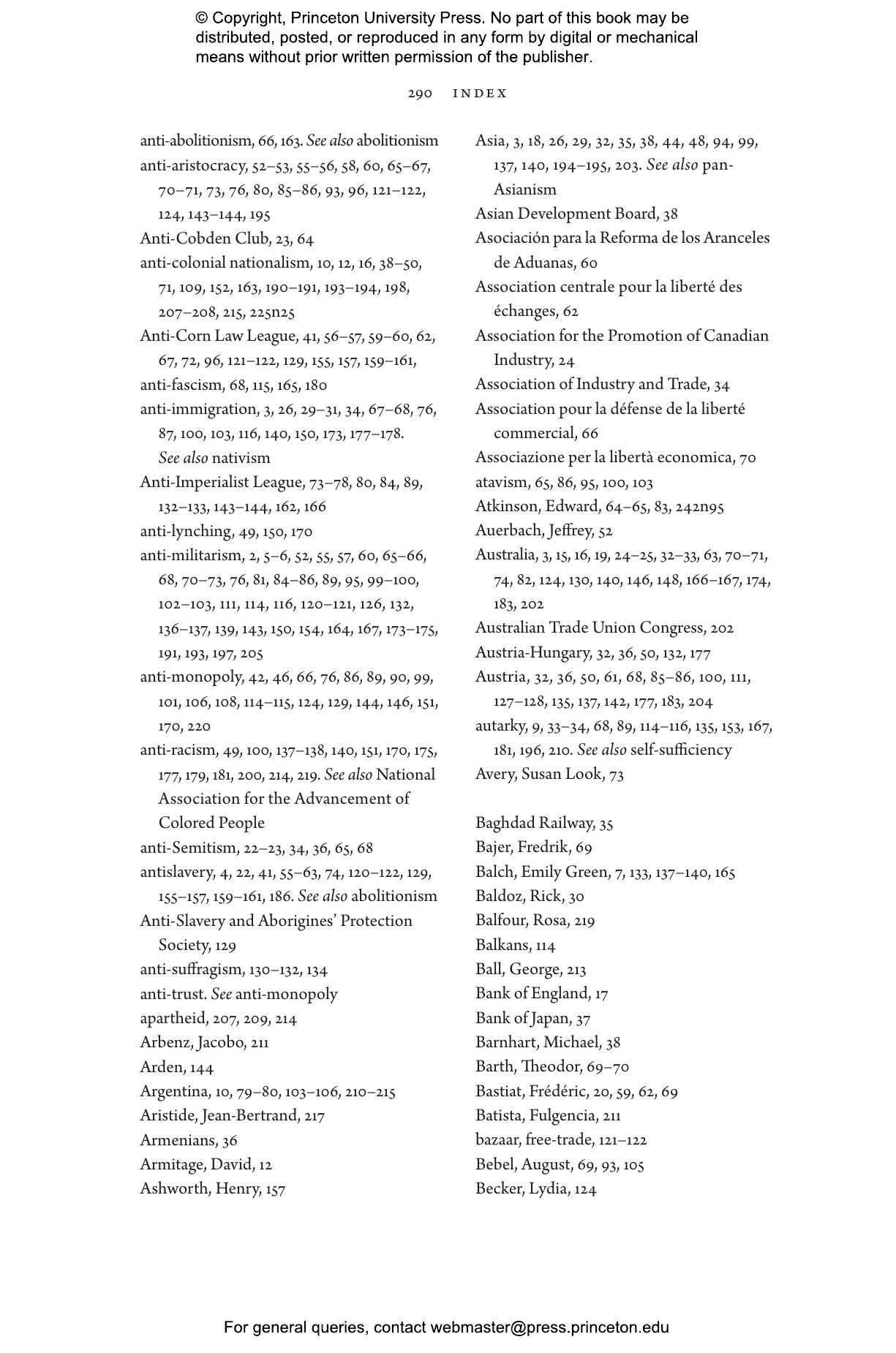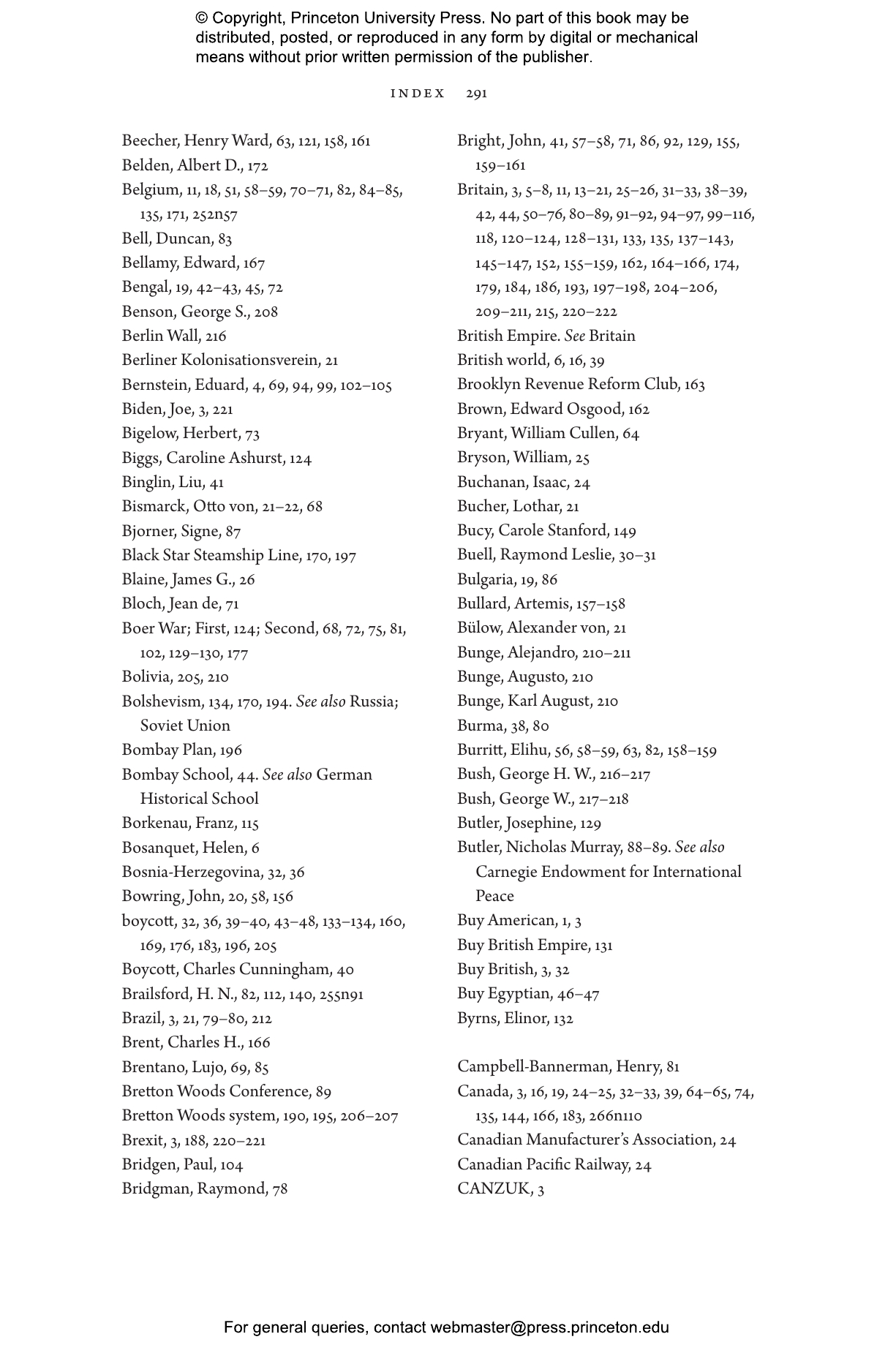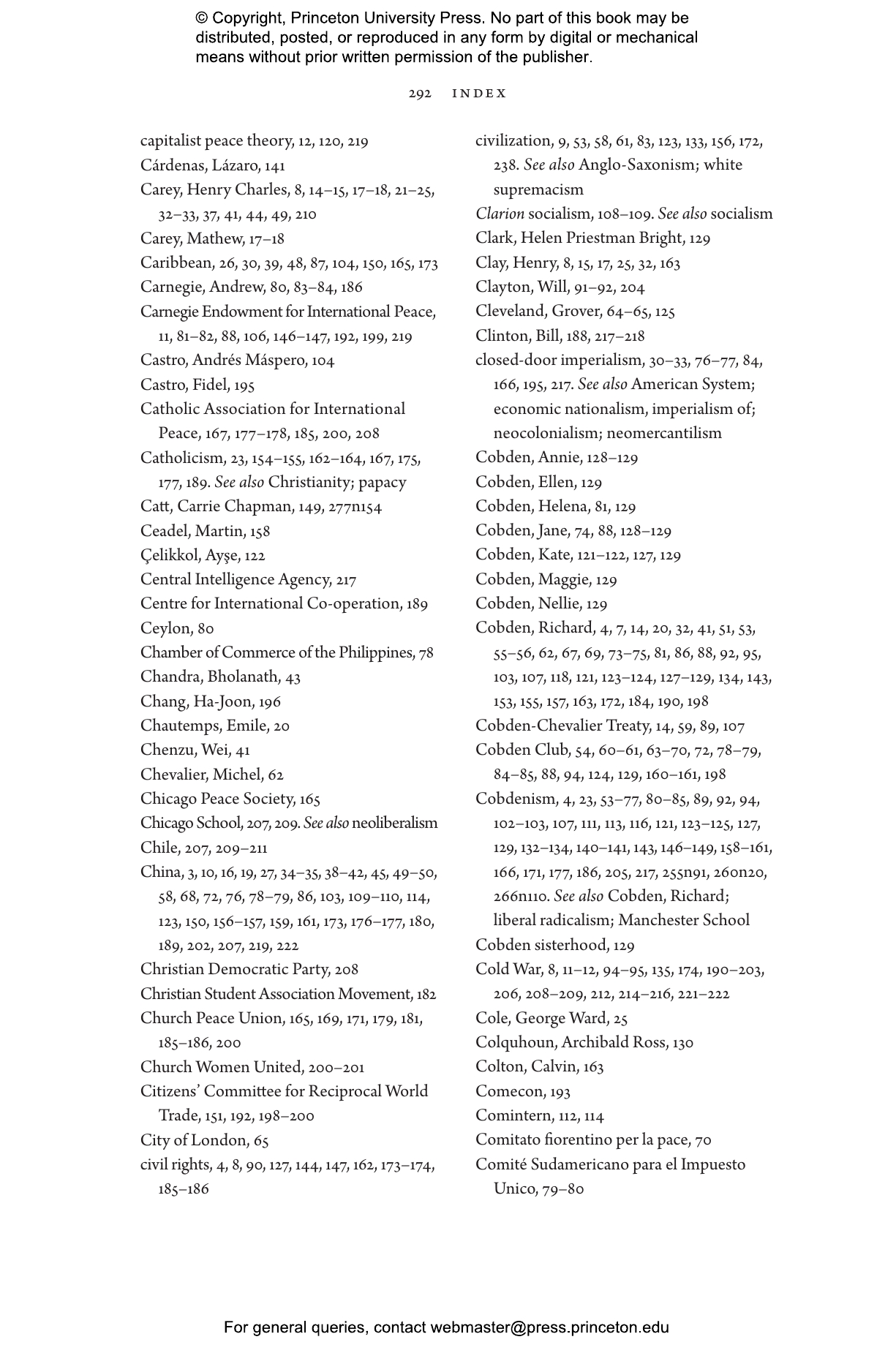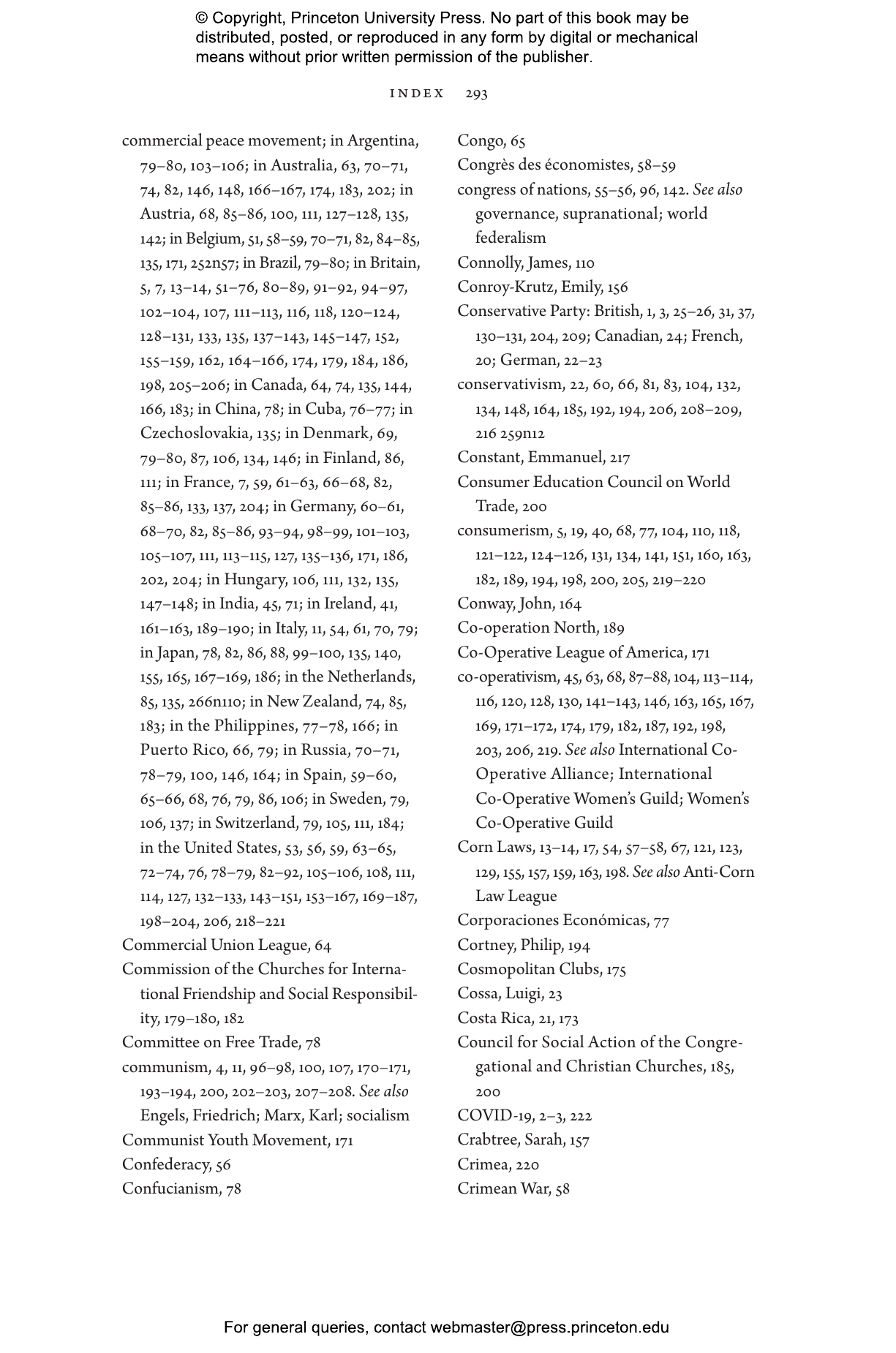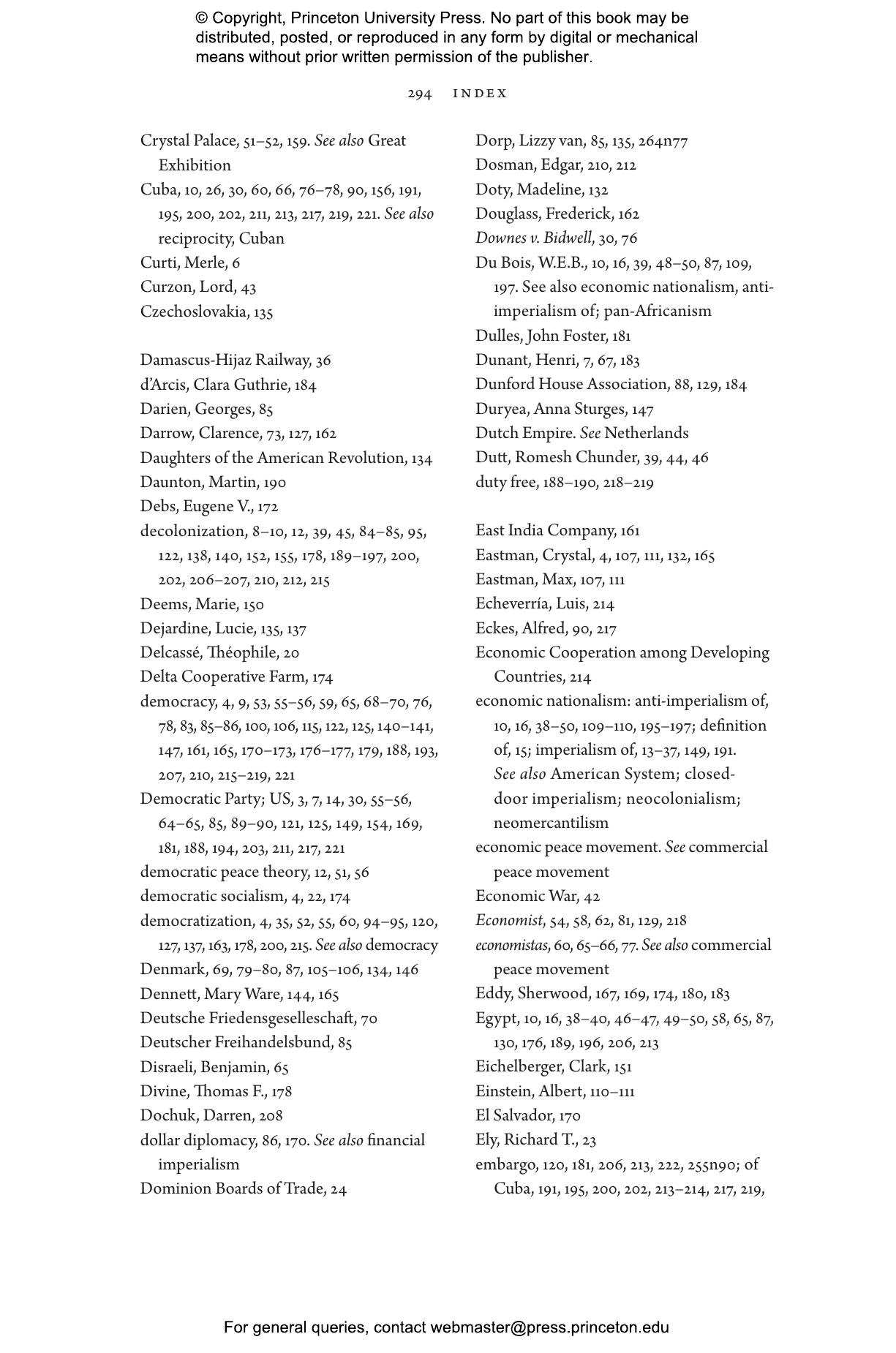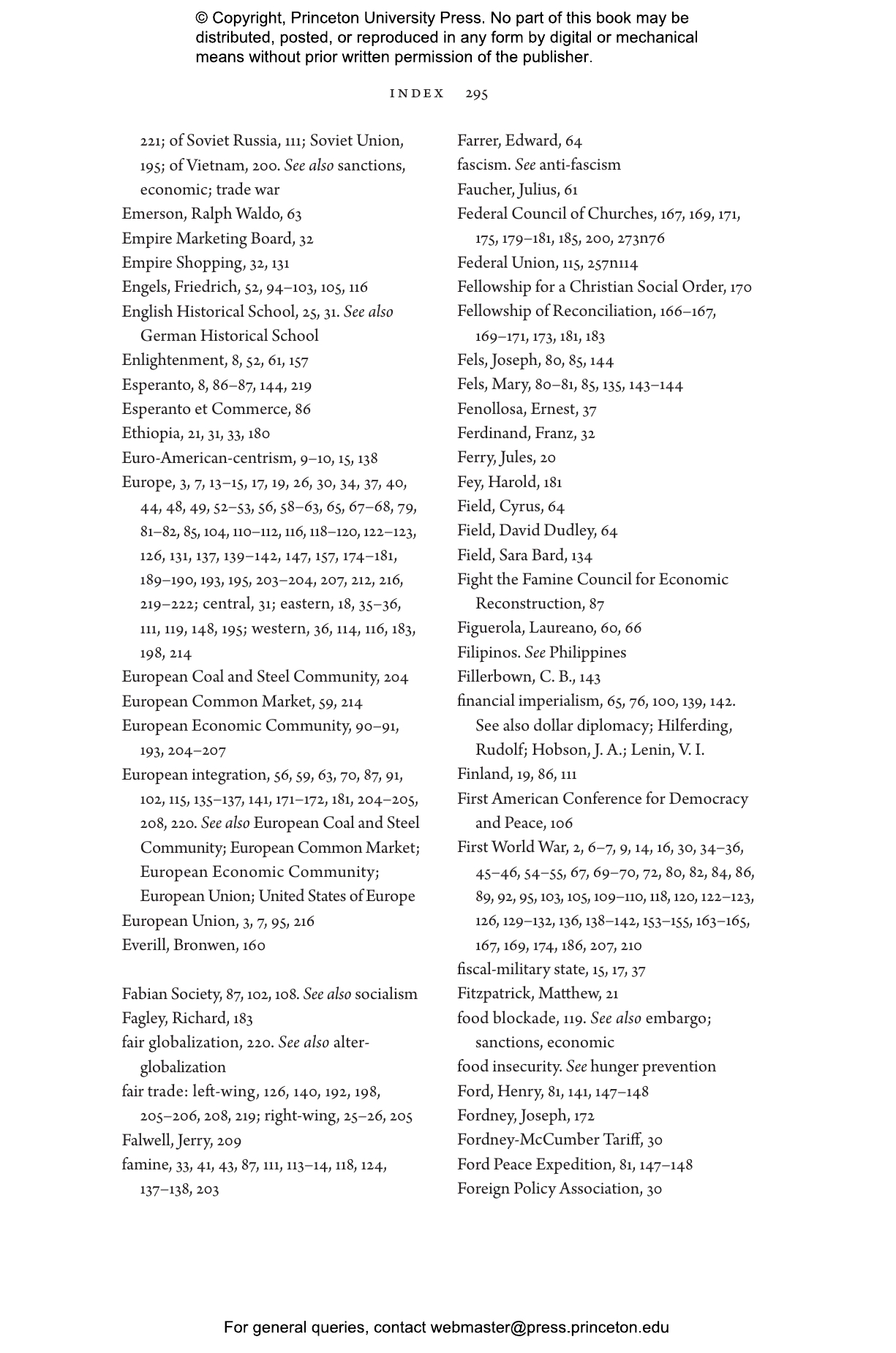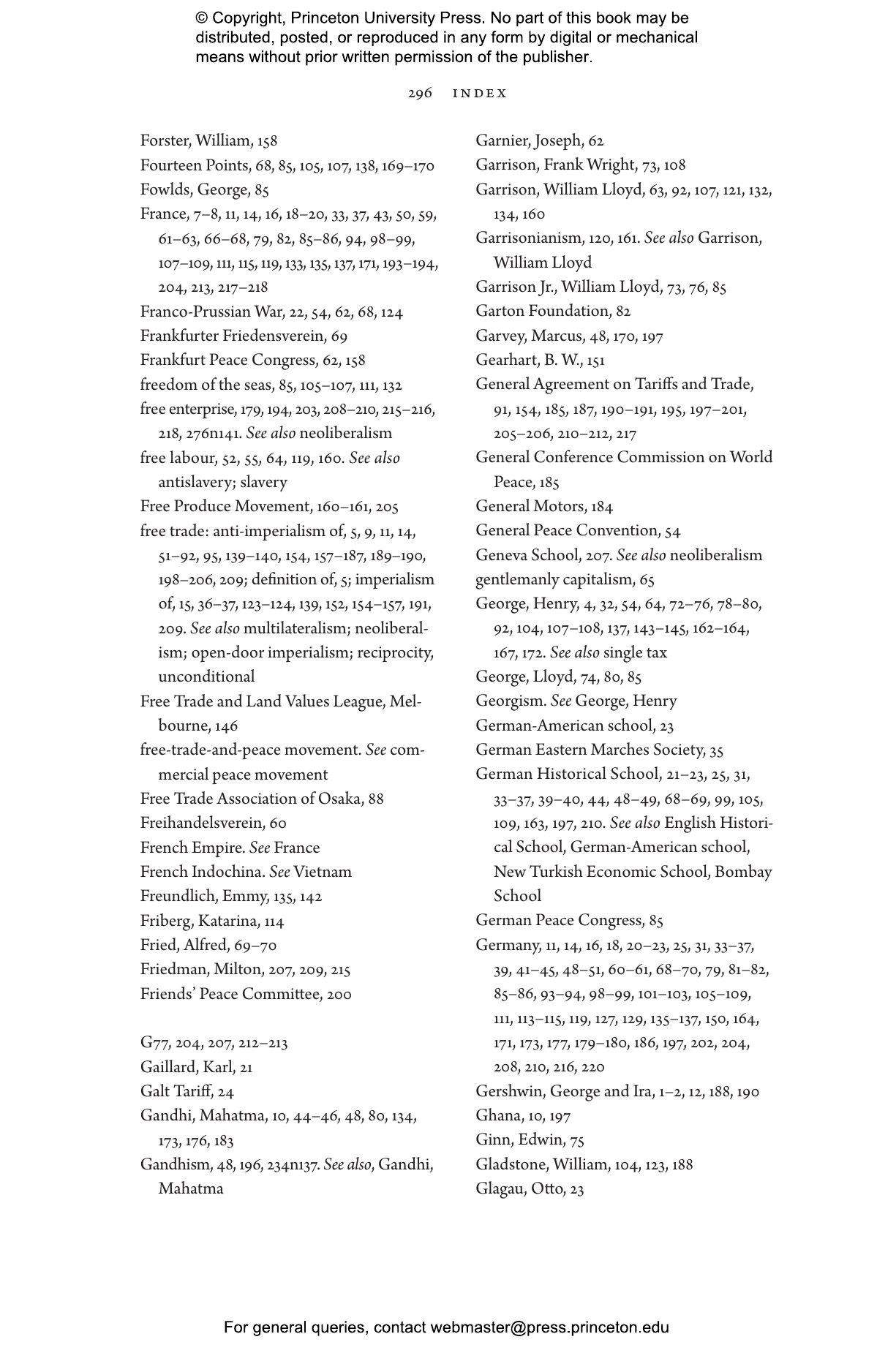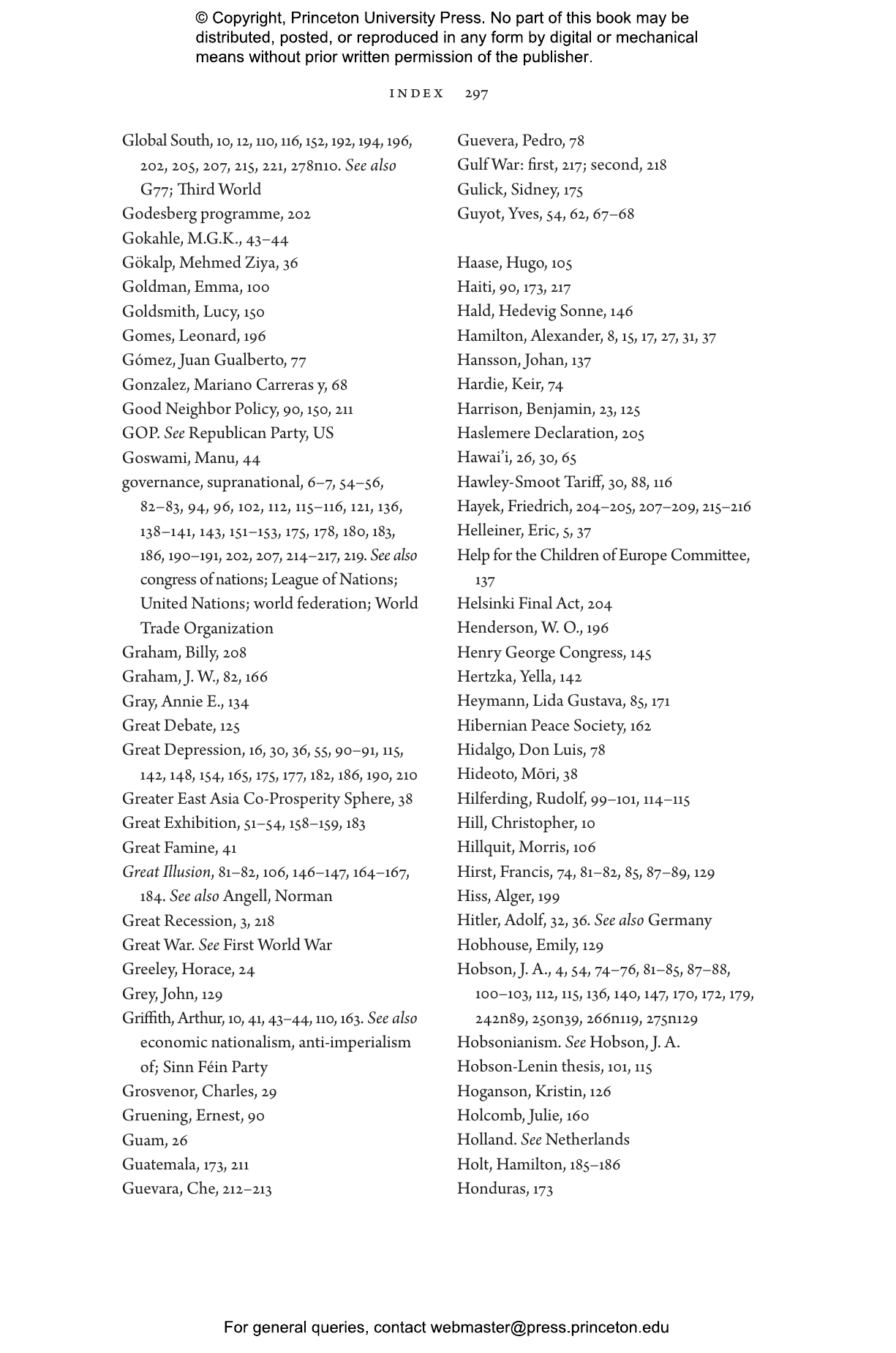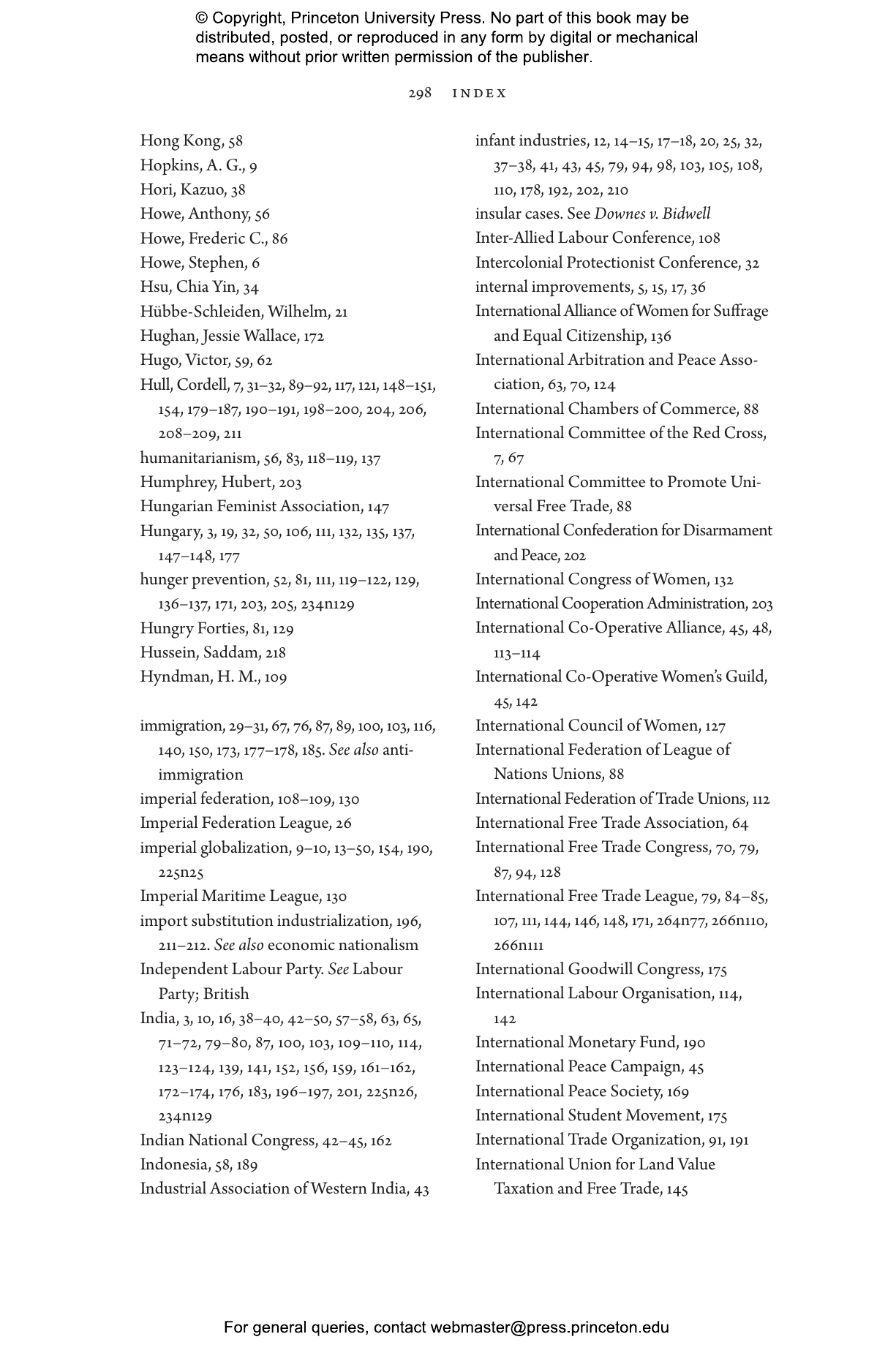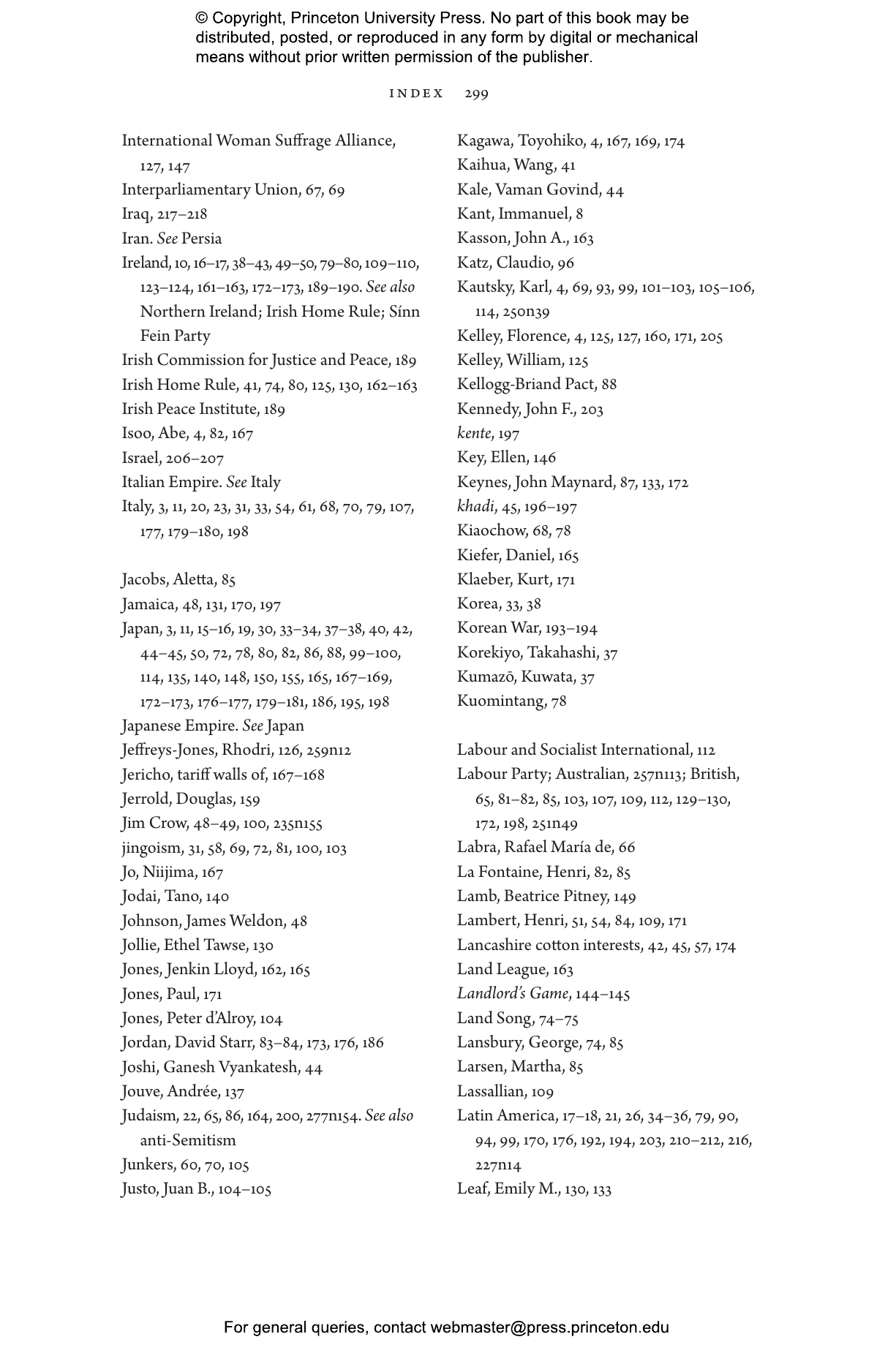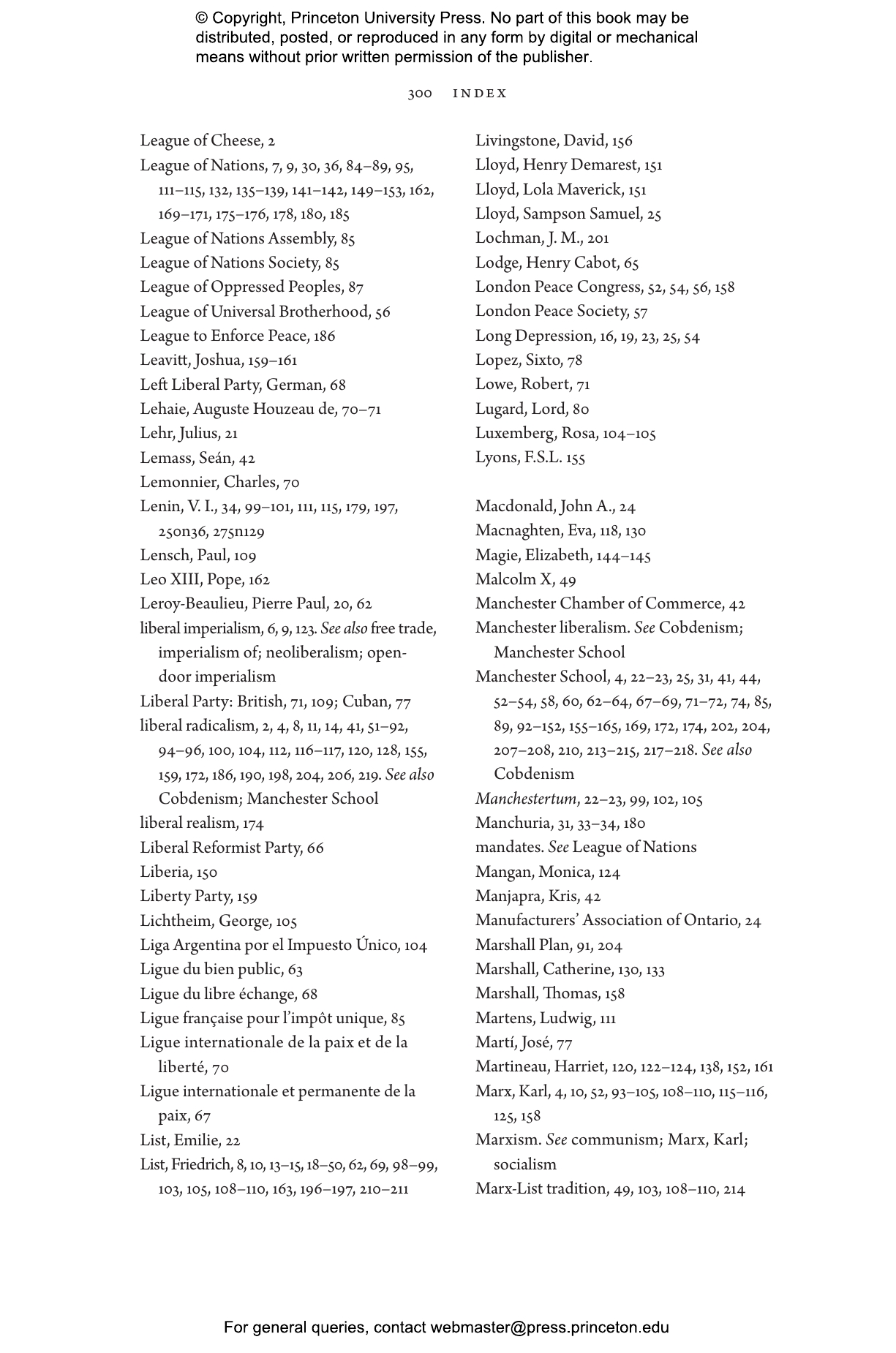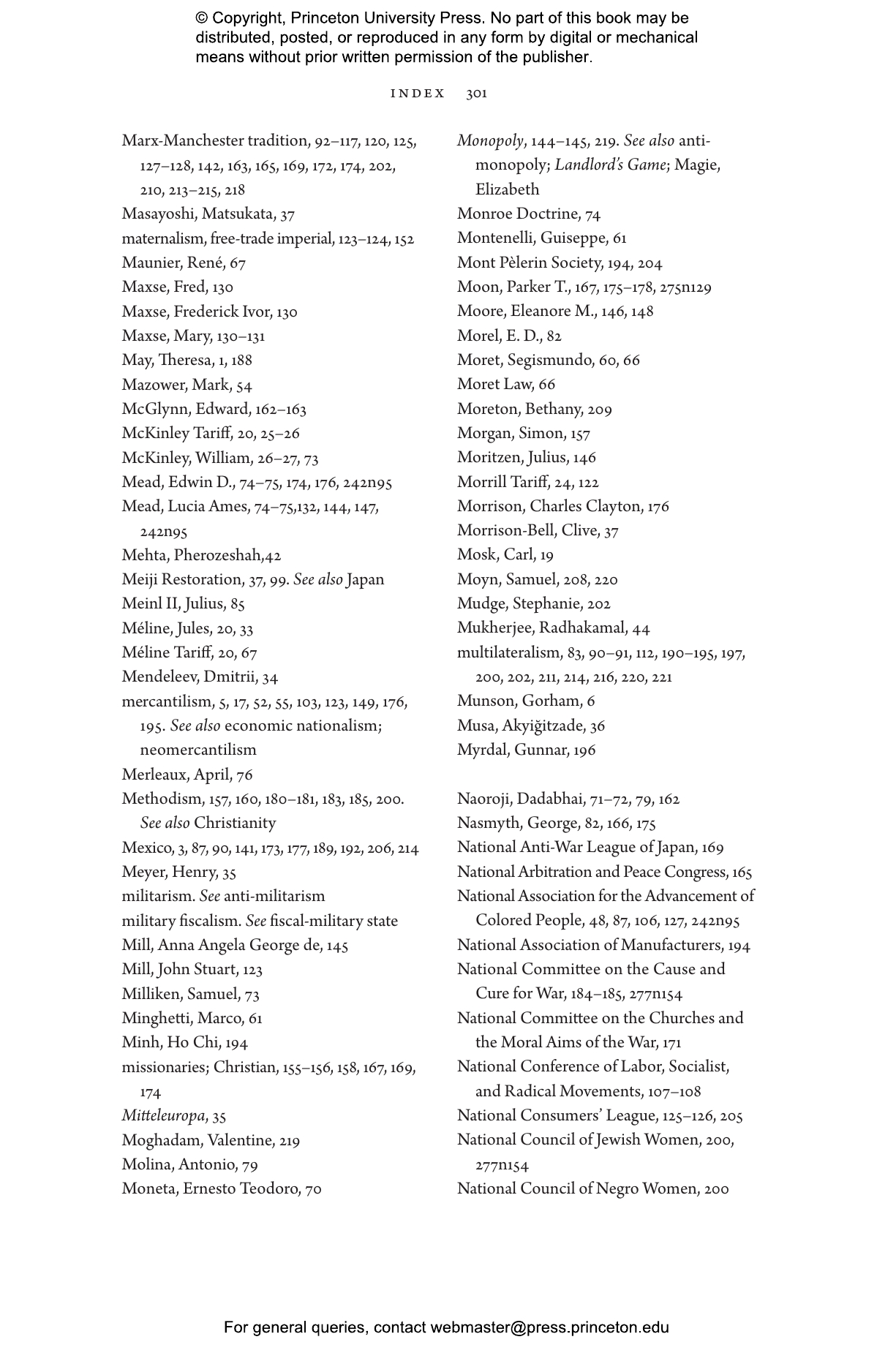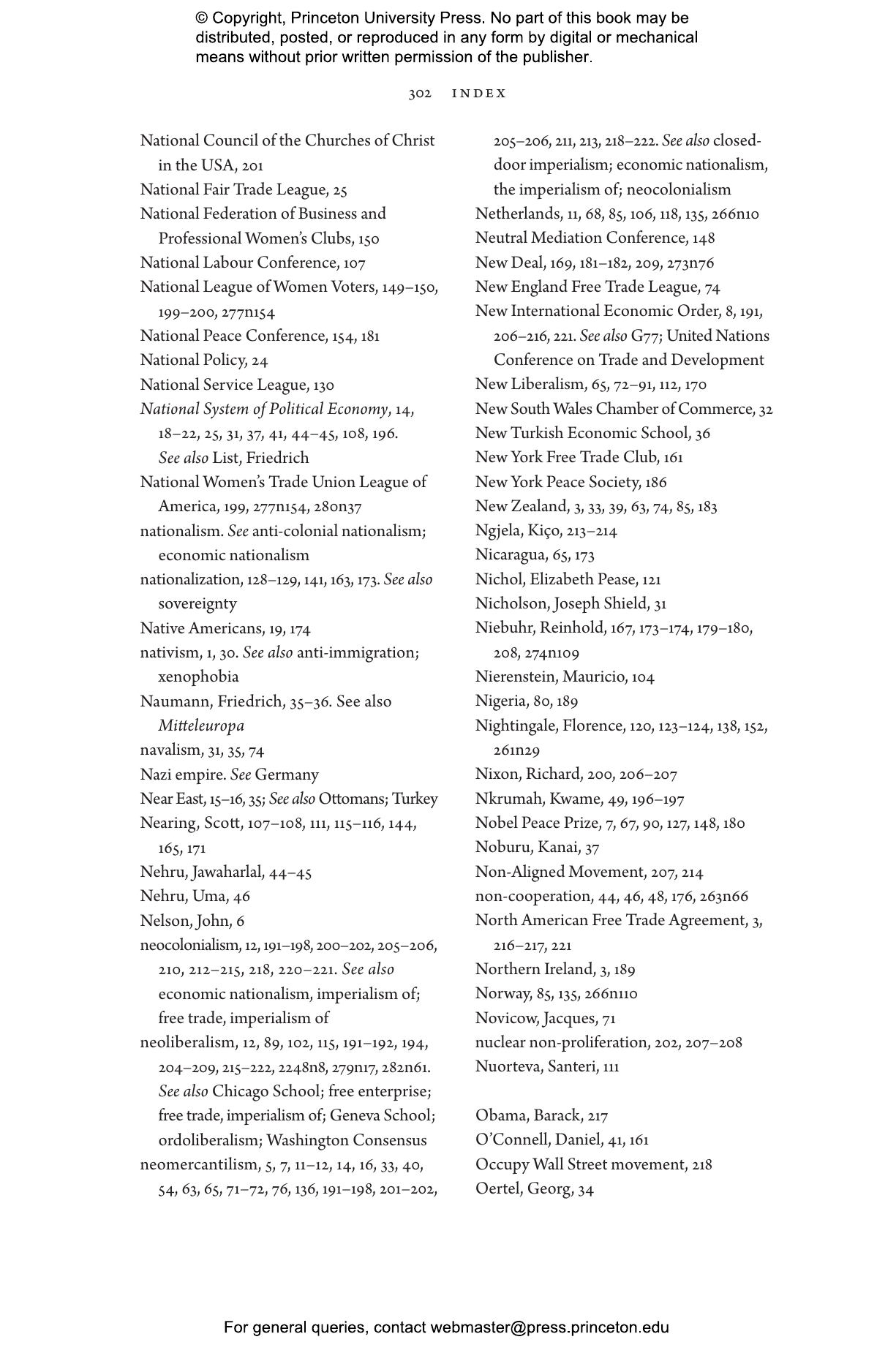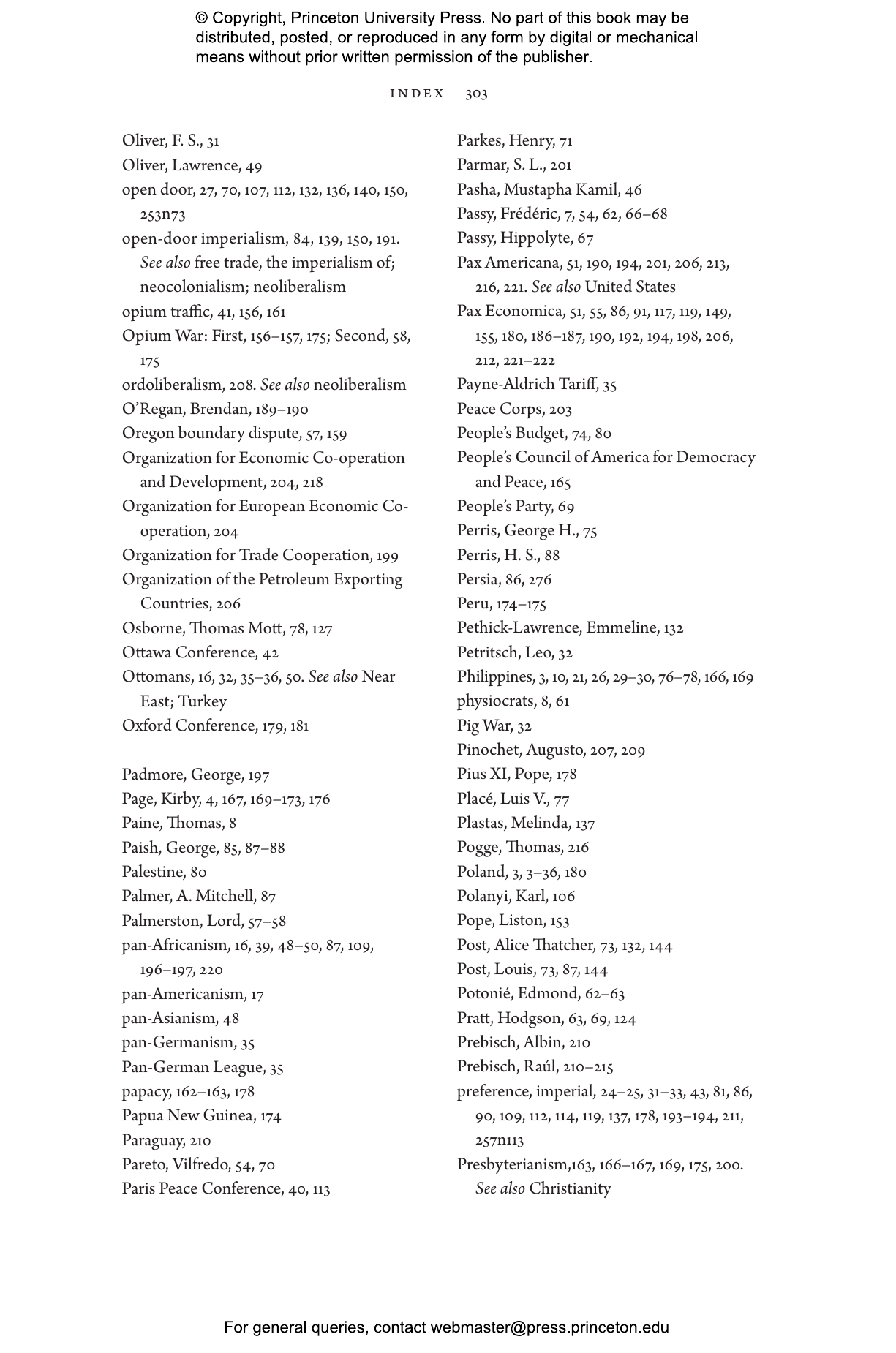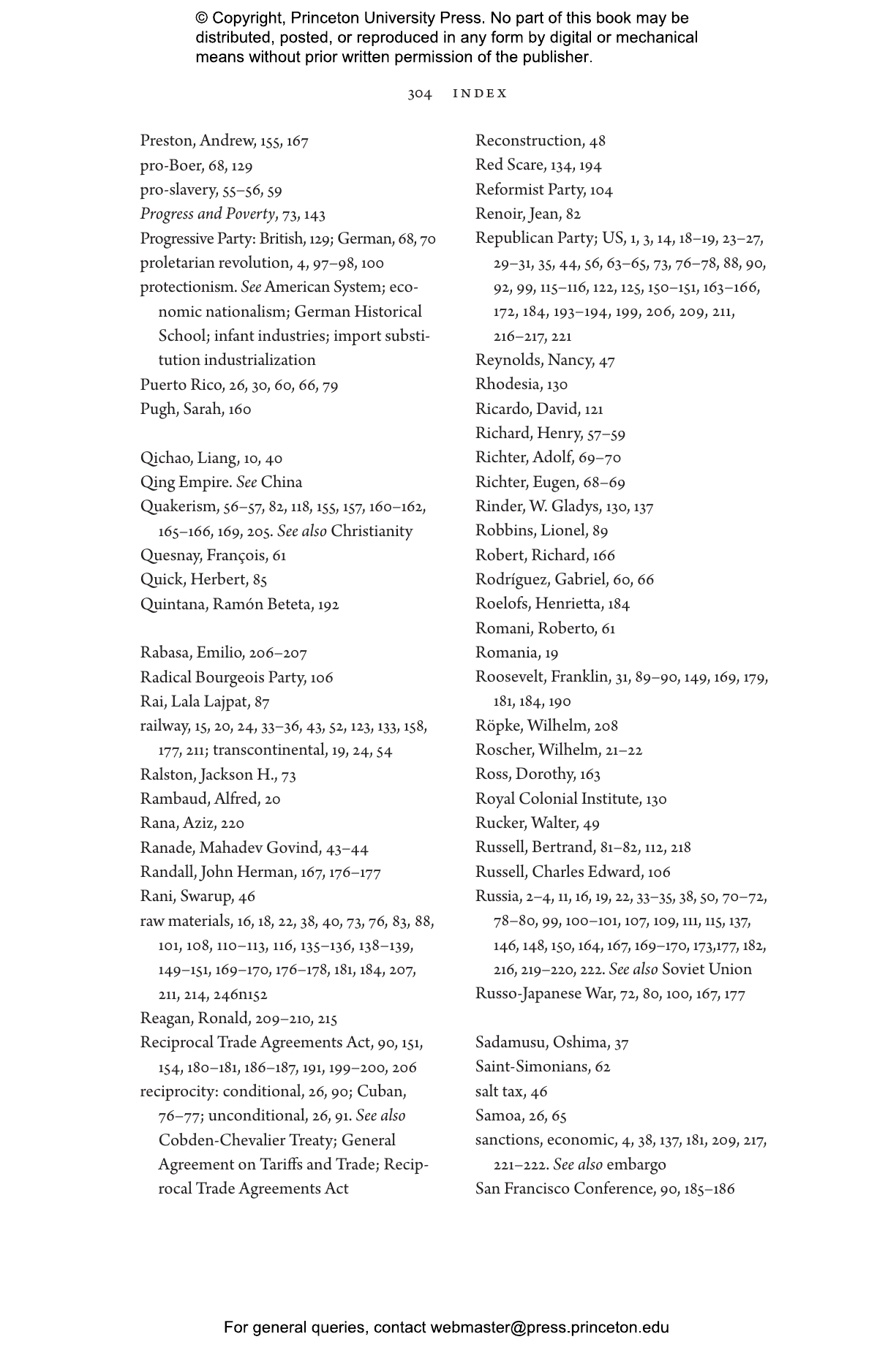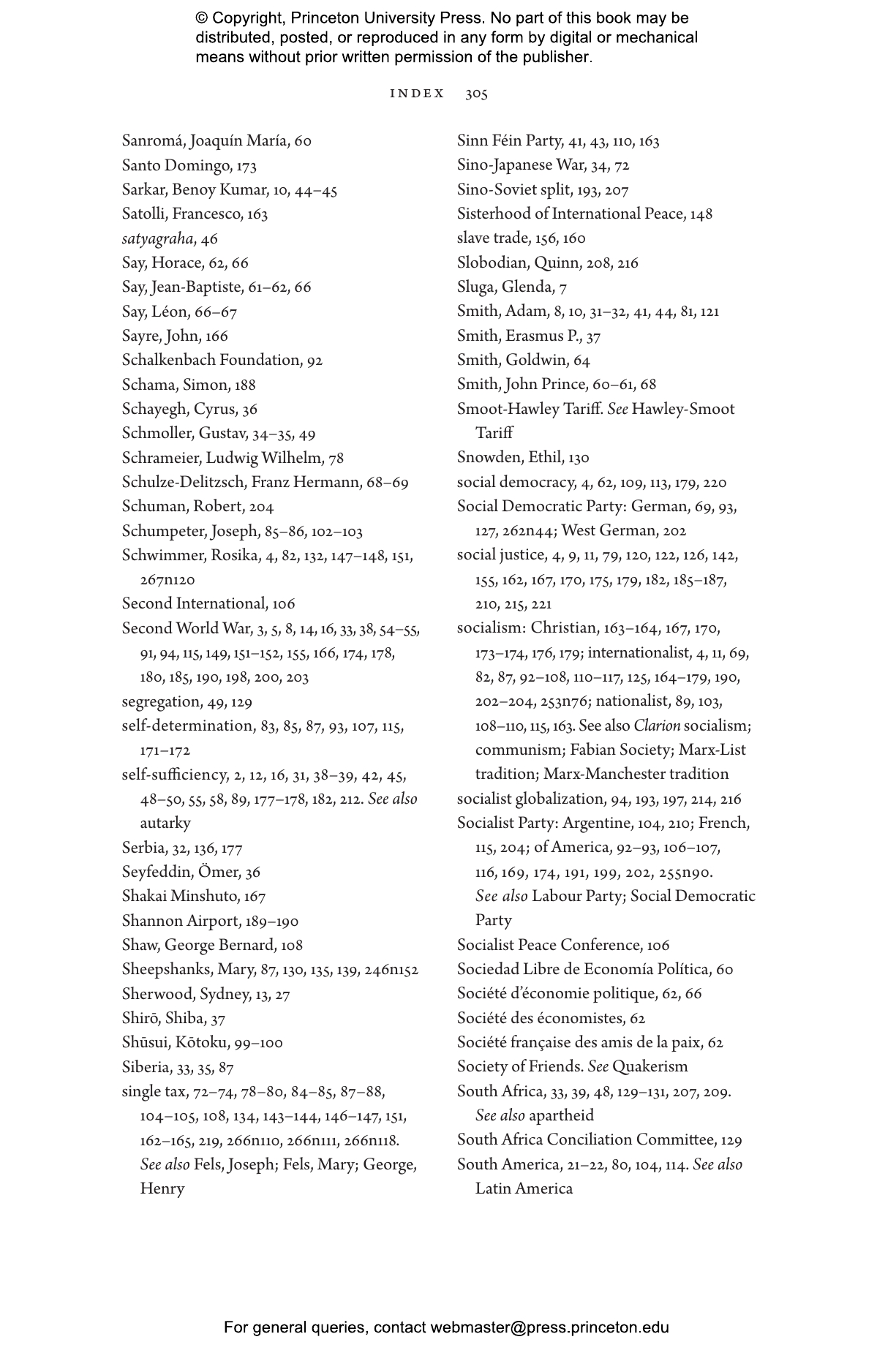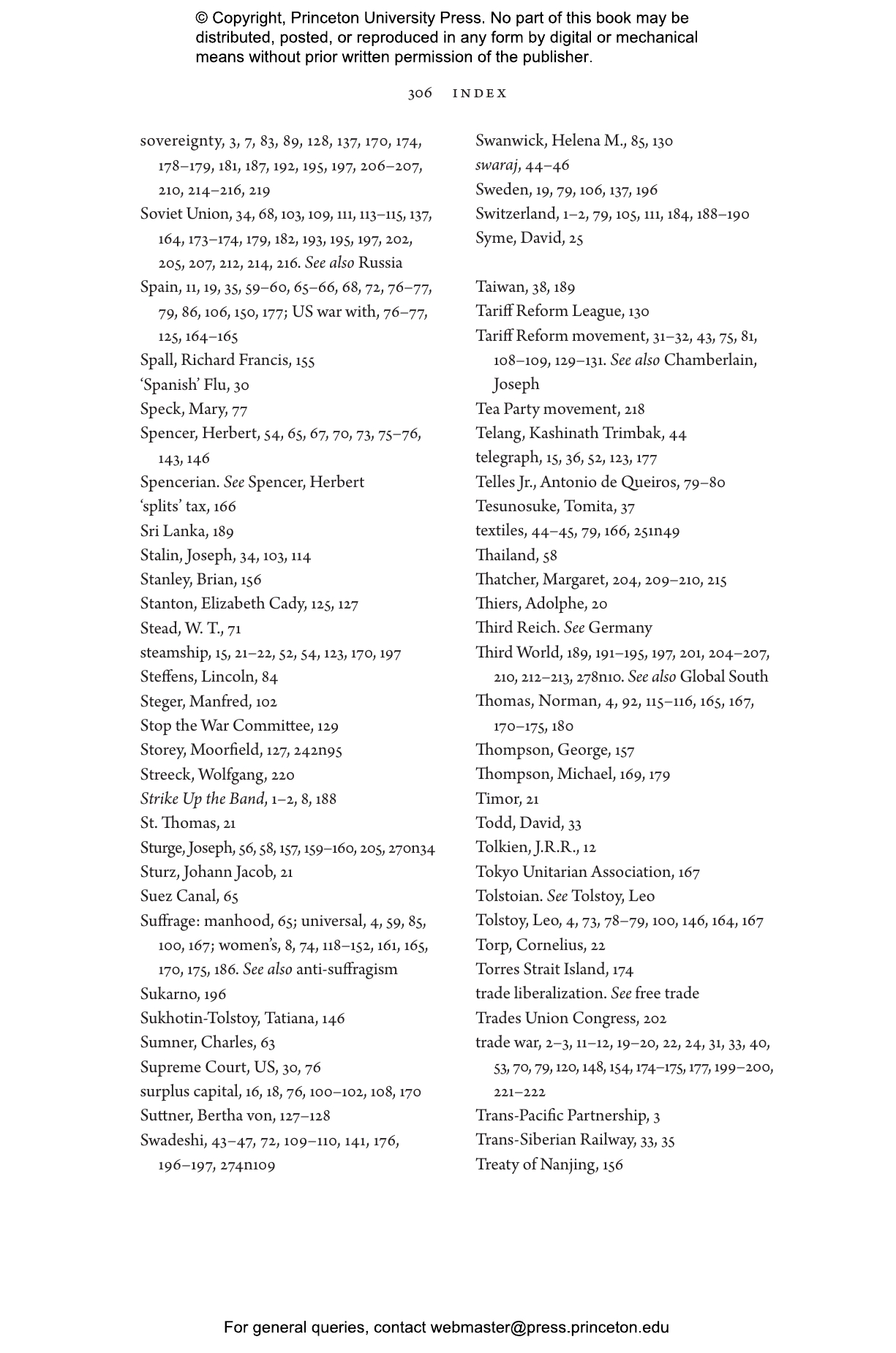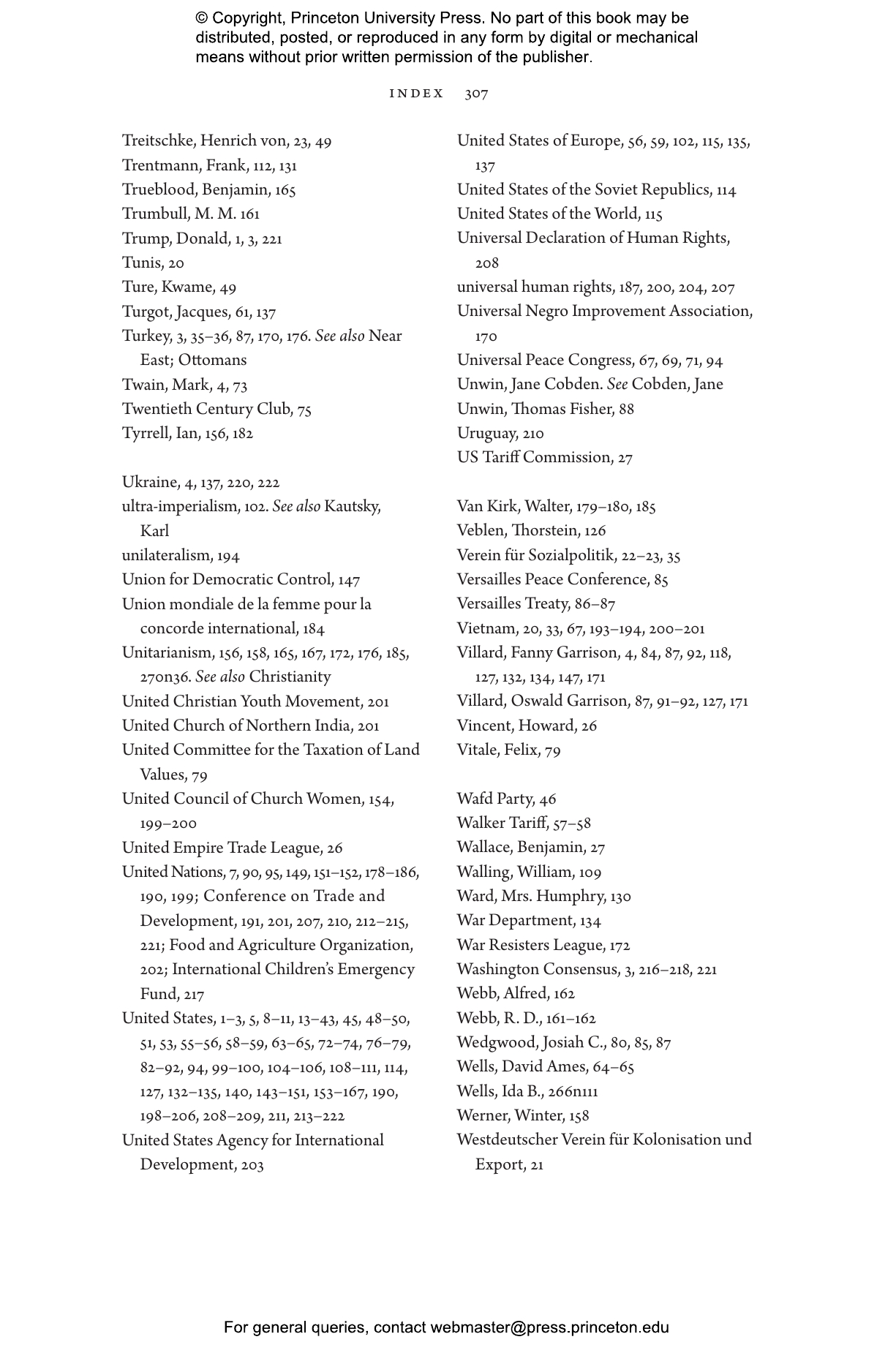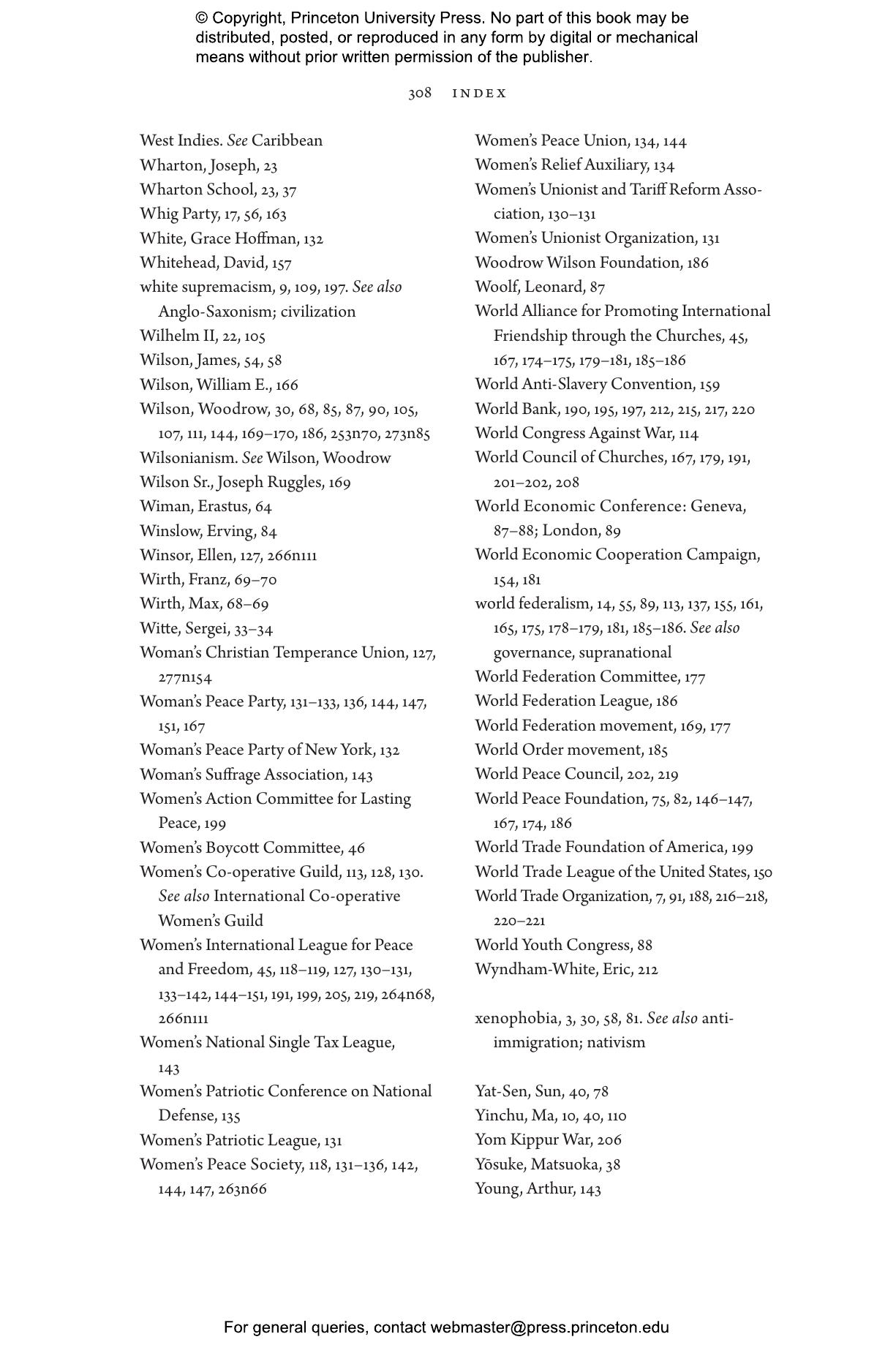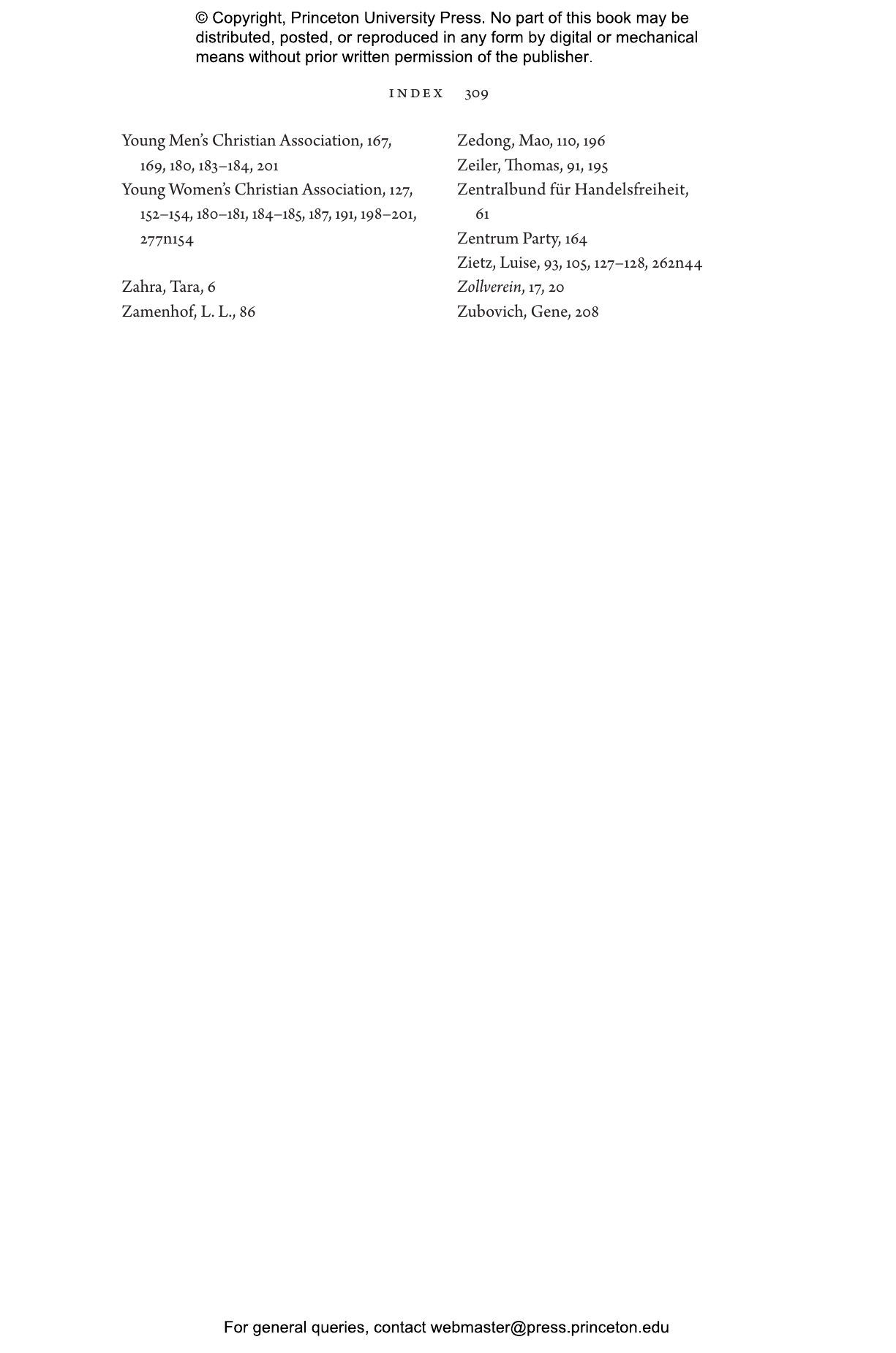Today, free trade is often associated with right-wing free marketeers. In Pax Economica, historian Marc-William Palen shows that free trade and globalisation in fact have roots in nineteenth-century left-wing politics. In this counterhistory of an idea, Palen explores how, beginning in the 1840s, left-wing globalists became the leaders of the peace and anti-imperialist movements of their age. By the early twentieth century, an unlikely alliance of liberal radicals, socialist internationalists, feminists, and Christians envisioned free trade as essential for a prosperous and peaceful world order. Of course, this vision was at odds with the era’s strong predilections for nationalism, protectionism, geopolitical conflict, and colonial expansion. Palen reveals how, for some of its most radical left-wing adherents, free trade represented a hard-nosed critique of imperialism, militarism, and war.
Palen shows that the anti-imperial component of free trade was a phenomenon that came to encompass the political left wing within the British, American, Spanish, German, Dutch, Belgian, Italian, Russian, French, and Japanese empires. The left-wing vision of a “pax economica” evolved to include supranational regulation to maintain a peaceful free-trading system—which paved the way for a more liberal economic order after World War II and such institutions as the United Nations, the European Union, and the World Trade Organization. Palen’s findings upend how we think about globalisation, free trade, anti-imperialism, and peace. Rediscovering the left-wing history of globalism offers timely lessons for our own era of economic nationalism and geopolitical conflict.
Awards and Recognition
- A New Yorker Best Book We've Read This Year
- A Financial Times Best Book of the Year: Economics
"Essential. . . . In this brilliantly detailed history of the free trade movement, Palen reveals something that will be eye-opening to members of the left and right, but arguably not surprising: free trade was historically an ideology most passionately embraced by members of the left."—John Tamny, Forbes
"A comprehensive account of the modern free-trade movement and a timely act of historical reclamation, this book illuminates the forgotten legacy of left-wing advocacy for liberalized markets. Palen, a historian, reveals the movement’s origins to be internationalist and cosmopolitan, led by socialists, pacifists, and feminists, who viewed expanded trade as the only practical way to achieve lasting peace in a newly globalized world. This fresh perspective complicates contemporary political archetypes of neoliberal free marketeers and 'Made in America' populists, adding valuable context to our often overly simplistic economic discourse."—New Yorker
"A new book by Marc-William Palen . . . which is as well-informed as it is well-timed, demonstrates in detail that “left-wing free traders were the leading globalists of their age."—Adrian Wooldridge, Bloomberg UK
"A very fine piece of work."—Alex Middleton, The Critic
"A corrective to dominant understandings of the views of the Left and Right on trade. . . . In telling the story, then, of a distinctive, global, and explicitly left-wing free trade tradition, Palen’s book, whose publication coincides with a year in which a possible Republican presidency is set to outline an even more economic nationalist agenda, couldn’t be more timely."—Lise Butler, Jacobin
"At a time when it can be hard to remember why anyone ever thought otherwise, historian Marc-William Palen has excavated a history of those who believed that free trade and peace went together. . . . He offers an instructive reckoning with what has passed for free trade until now, allowing us to see that actually existing free trade since the 1970s let us down because it was never free."—Kate Yoon, Boston Review
"Free trade doctrine was once a mainstay of the political left, according to this probing history. . . . [The book is] a revealing analysis of how potent, disruptive, and even revolutionary the concept of economic freedom has been."—Publishers Weekly
"Intriguing, thought-provoking and impressively panoramic. . . . [Pax Economica] tells the neglected and, to anyone conditioned by contemporary political alignments, somewhat surprising tale of an era, roughly between 1840 and 1945, when notable support for free trade came from a loosely defined political left."—Andrew Stuttaford, Wall Street Journal
"The author should be applauded for his addition to the historiography and debate on the roots and supporters of free trade. His book has achieved its goal of incorporating socialists, pacifists, ‘radical’ liberals, and other left-wing movements as some of the original standard-bearers of free trade. . . .The book is approachable and enjoyable to read. . . .Those interested in economic history, political economy, and just refreshing perspectives should definitely read this book."—Maximilian Magnacca, The Society of Professional Economists
"Palen has a good eye for the telling anecdote. . . . But Palen’s central argument is an interesting one."—Howard Davies, Literary Review
"In “Pax Economica”, Marc-William Palen of the University of Exeter chronicles the history of left-wing free traders. They are a breed that is now almost extinct, but remnants of their influence are everywhere. . . . On all sides of the political spectrum supporting free trade once again feels radical."—Economist
"The work is ambitious, immaculately researched, and a timely publication amid the resurgence of economic nationalism and geopolitical conflict. . . . The book will interest scholars and general readers. It follows the tradition of ‘broad sweep’ history, informed by a considerable body of research and synthesis, and as such is thought-provoking, engaging, and interesting to read."—Gordon Bannerman, The Centre for Enterprise, Markets and Ethics
"As Palen of the University of Exeter shows, free trade was once the cause of anti-imperialists and those seeking global peace against protectionists, nationalists and imperialists . . . This book is an excellent counter to contemporary conventional wisdom."—Martin Wolf, Financial Times
“In this eye-opening and learned book, Marc-William Palen provides a thrilling example of how differently our ancestors saw the world. Now regarded as a device of inequality and neoliberalism, free trade was once the highest instrument of advocates of international peace and prosperity. As protectionism surges in our world—not least in the policy of the United States, which once made economic nationalism notorious—Palen’s point is of far more than historical interest.”—Samuel Moyn, Yale University
“Pax Economica is a brilliant study of the radical and progressive history of free trade. In a sweeping narrative, Marc-William Palen masterfully shows how thinkers all over the world believed free trade could promote peace and prosperity on a global level. Through rich archival research and innovative theoretical interpretation, the book offers an important alternative to contemporary thinking about free trade and international relations. Pax Economica is an outstanding book that will transform our understanding of the history of free-trade economics and its influence on international politics.”—Or Rosenboim, author of The Emergence of Globalism: Visions of World Order in Britain and the United States, 1939–1950
“Marc-William Palen provides a novel and refreshing account of the fortunes of the movements for free trade, anti-imperialism, and peace from the 1840s to the present. In doing so, he draws free traders across the world into his story, relates their fortunes to mercantilist and neomercantilist interests, and finds room for some fascinating and little-known supporters among feminist and Christian pressure groups. This must rank as the most comprehensive study yet of a movement that has fallen on hard times recently but still hopes that its day will come.”—A. G. Hopkins, author of American Empire: A Global History
“For the last couple of decades, the desire to write a prelude to the present has driven historians to build causal chains linking free trade, liberalism, empire, globalism, and capitalism. Forgotten in the process was a rich and often dissident tradition that called for free trade from the left. As Marc-William Palen shows us in a vivid new book bristling with examples and spoiling for a historiographical fight, these movements—at their best—were consistent opponents of colonialism, slavery, monopoly power, and even patriarchy. His timely and provocative fusion of ‘Marx and Manchester’ is a political cherry bomb that forces us to rethink our sometimes overly simplistic storylines.”—Quinn Slobodian, author of Crack-Up Capitalism: Market Radicals and the Dream of a World Without Democracy
“In Pax Economica, Marc-William Palen performs an important act of historical recovery. Drawing on an impressive body of research, he traces the various iterations of cosmopolitan free-trade arguments advocated by radical liberals, social democrats, and socialists between the 1840s and 1940s. Palen places the question of trade at the heart of debates over internationalism, war, and empire, debates which are as relevant today as at the height of the Victorian age. This is a major contribution to intellectual and political history.”—Duncan Bell, University of Cambridge
